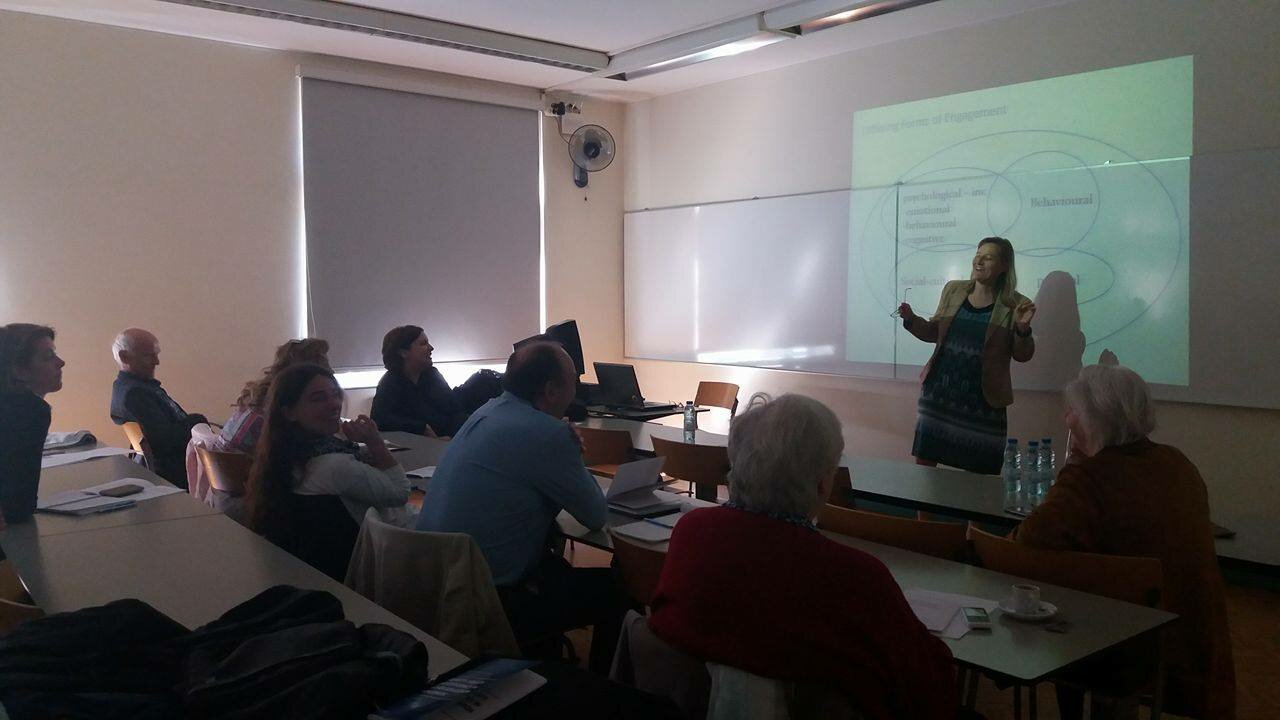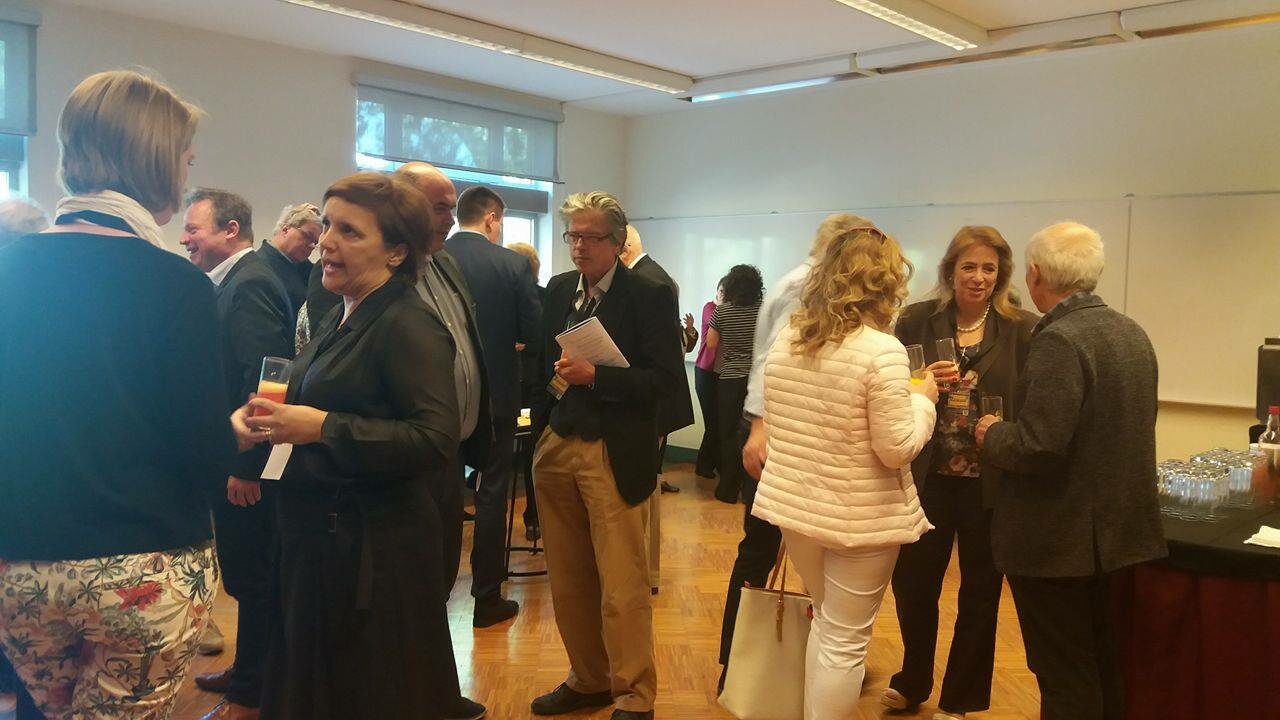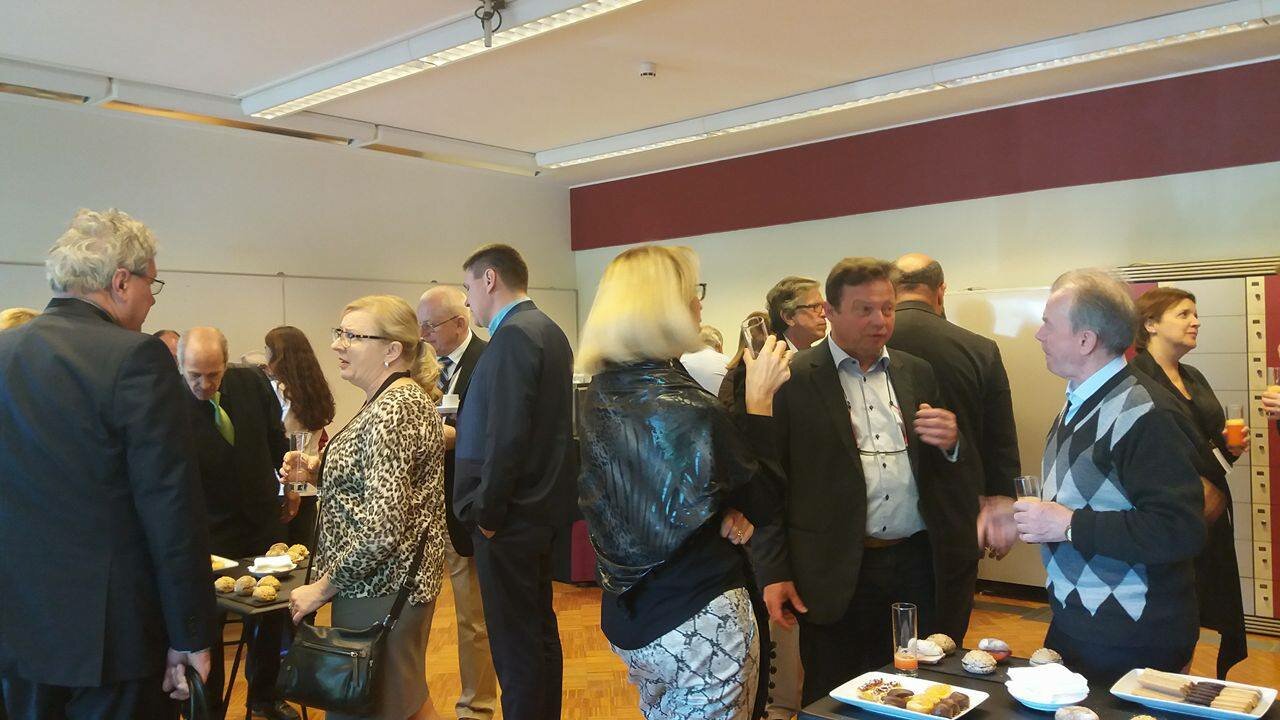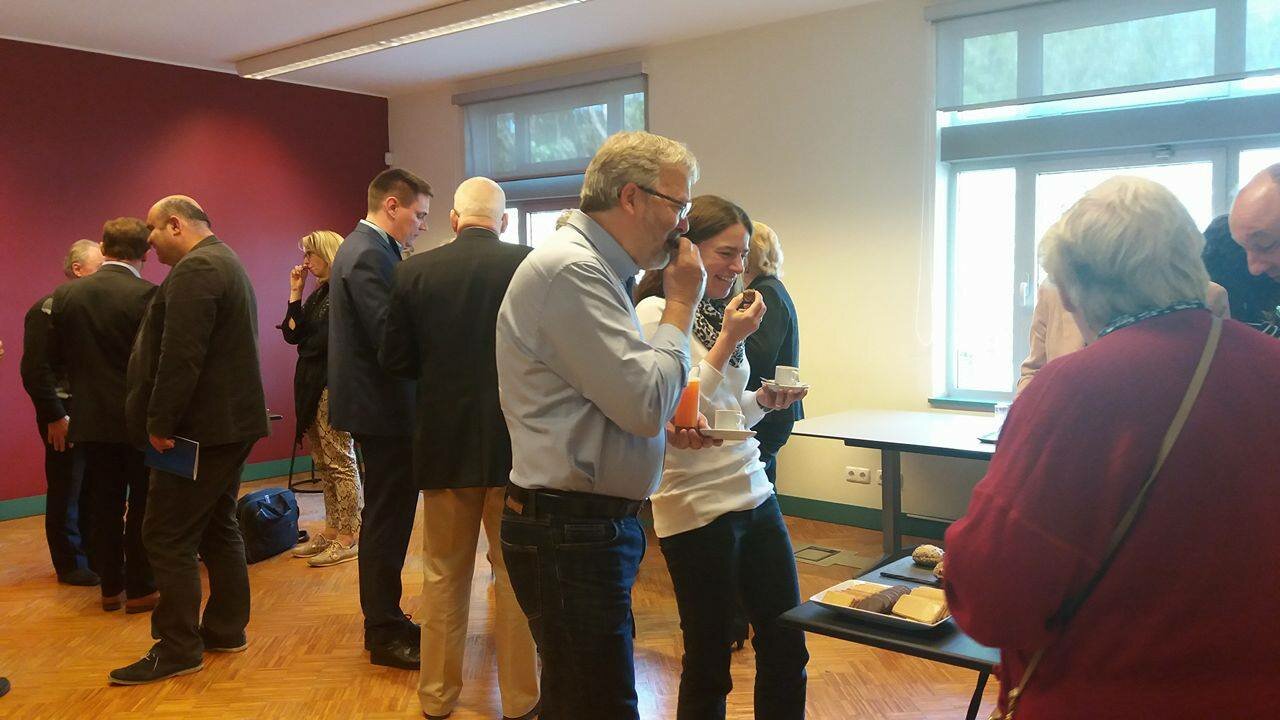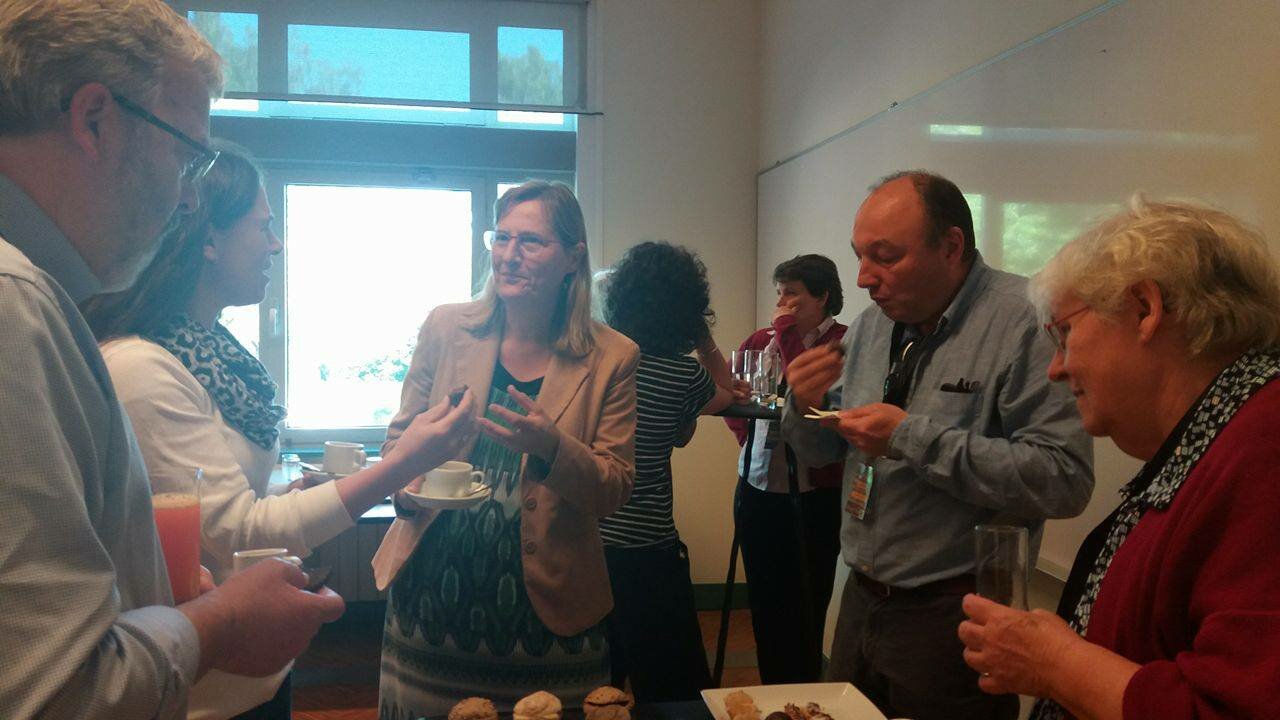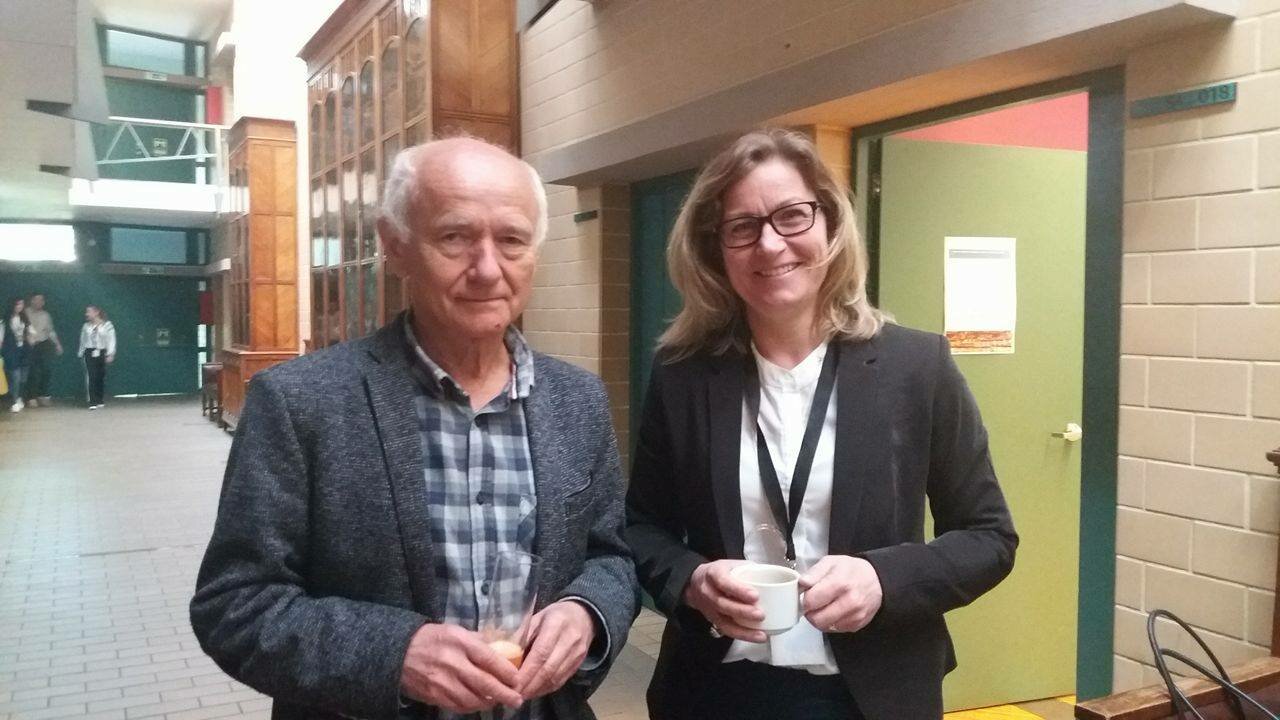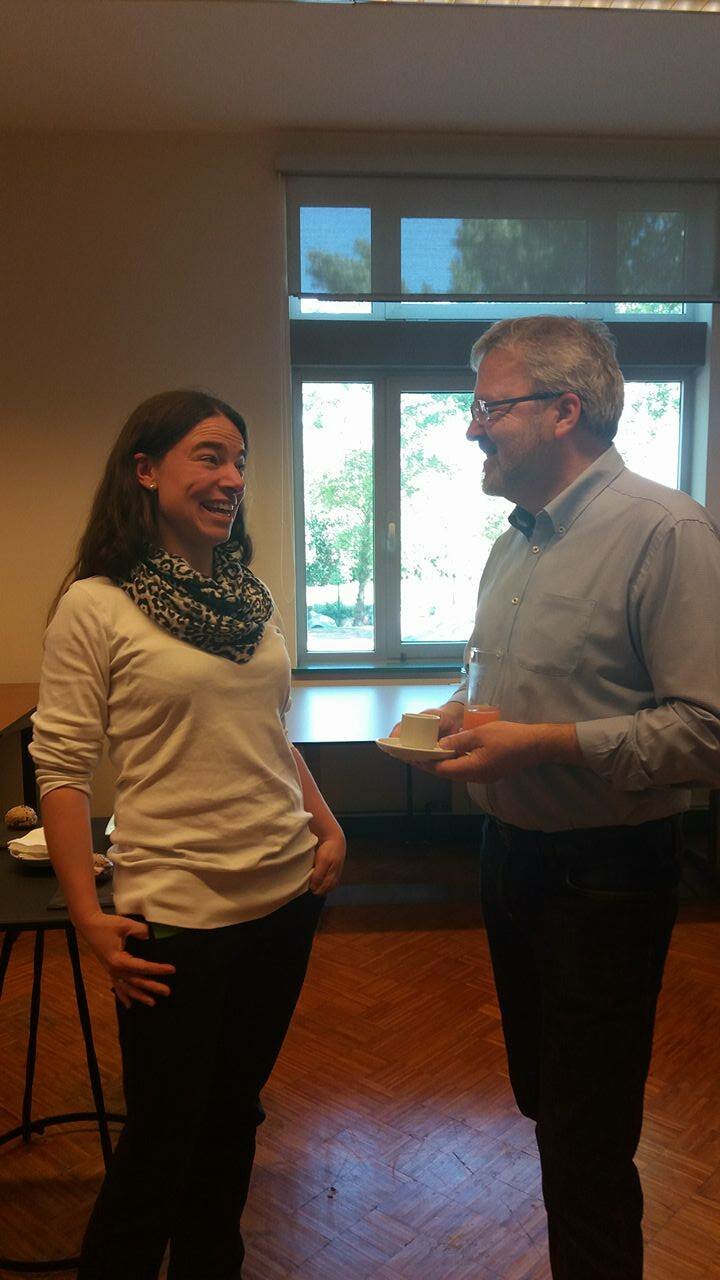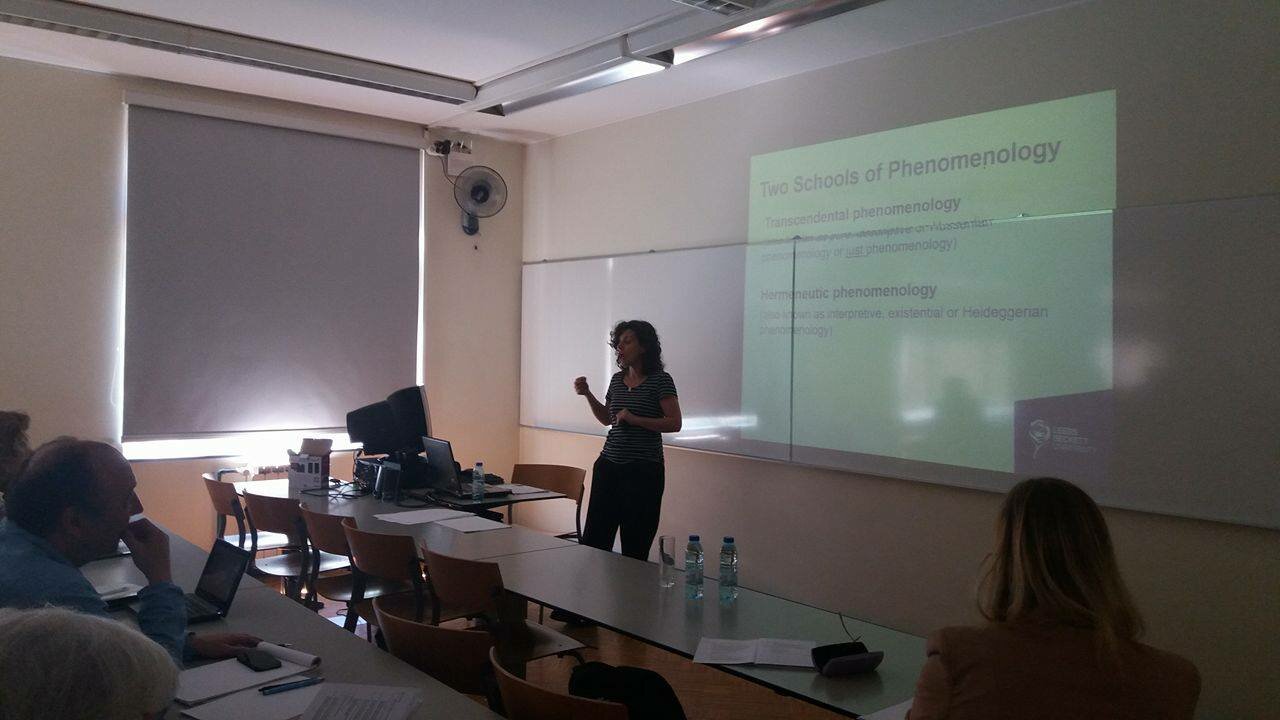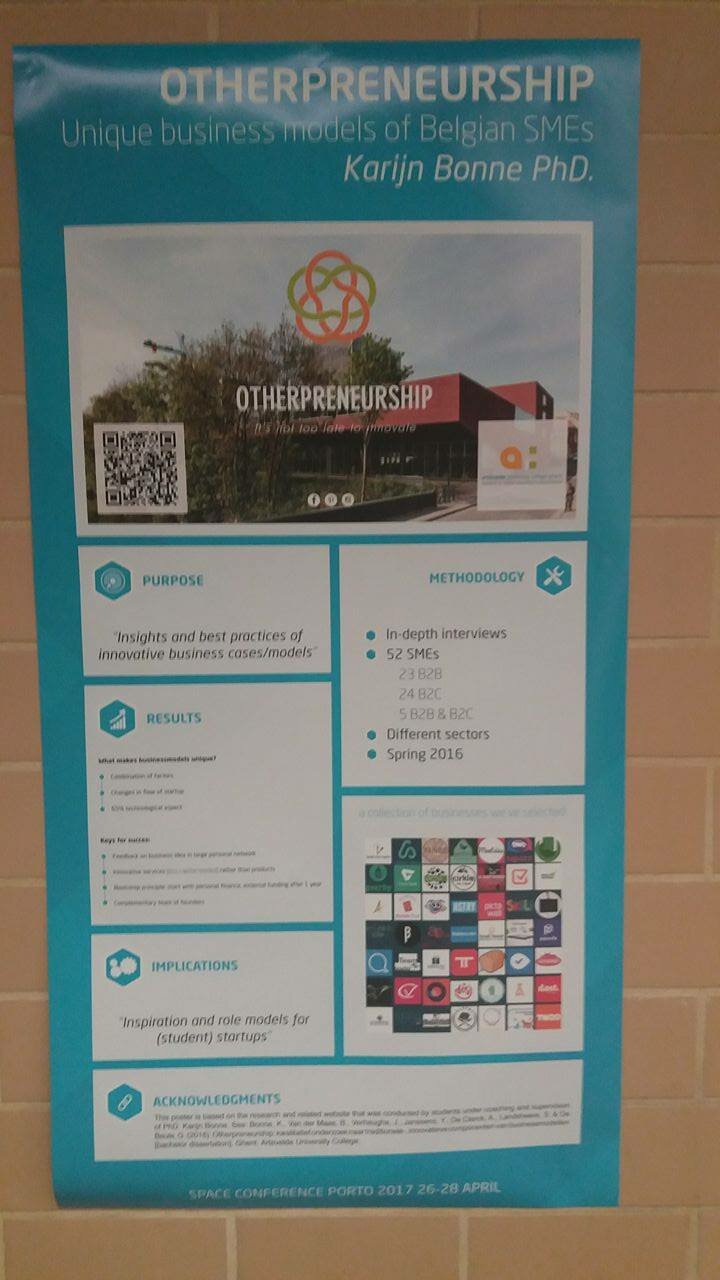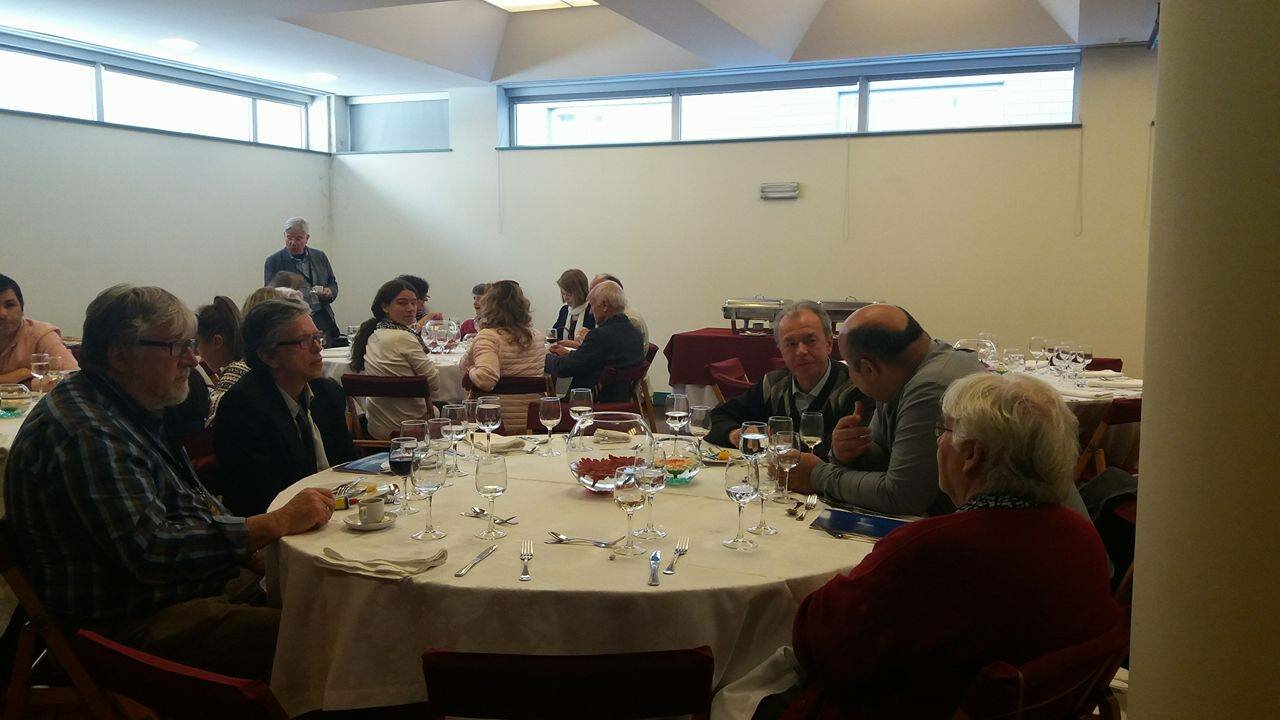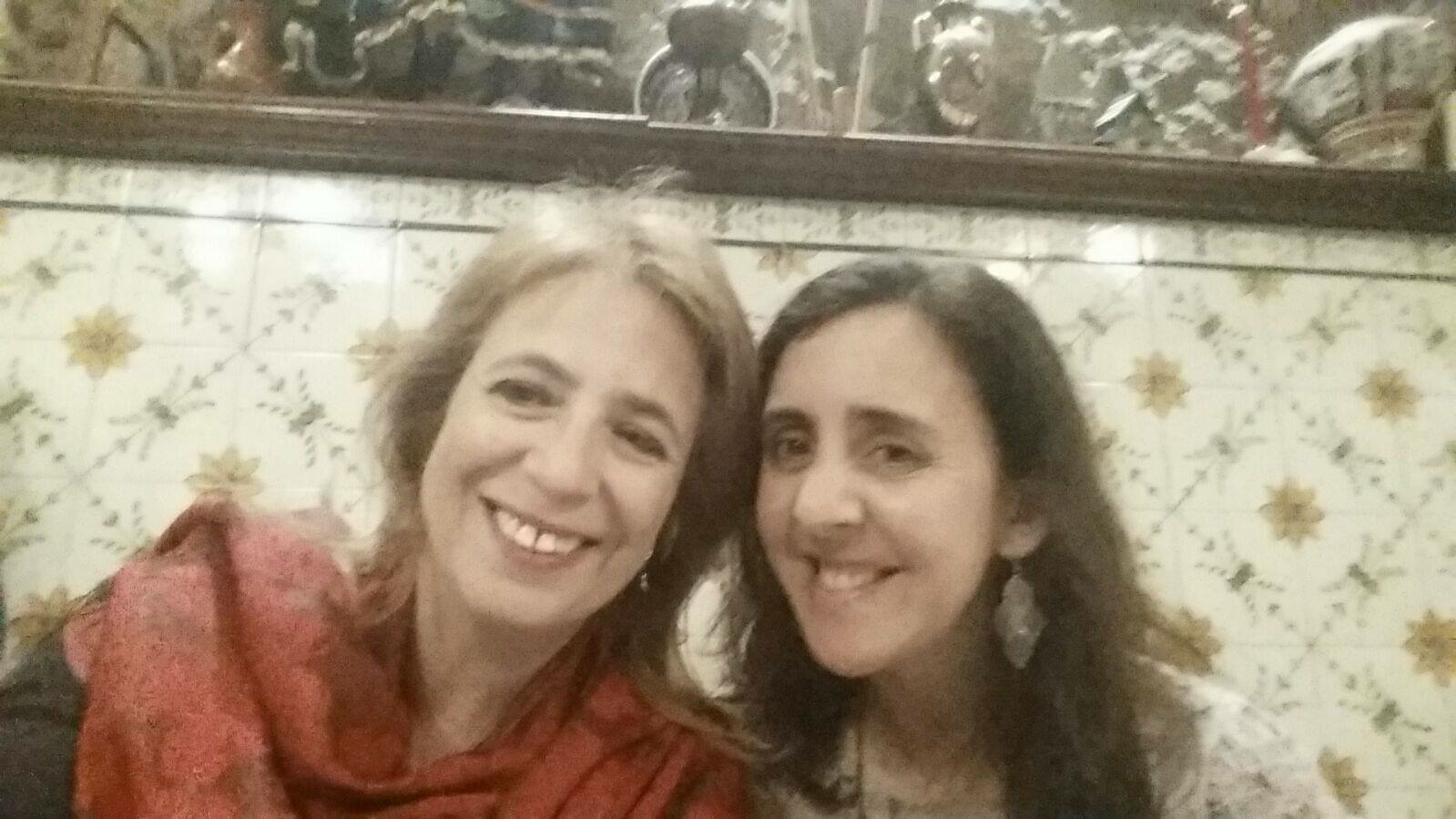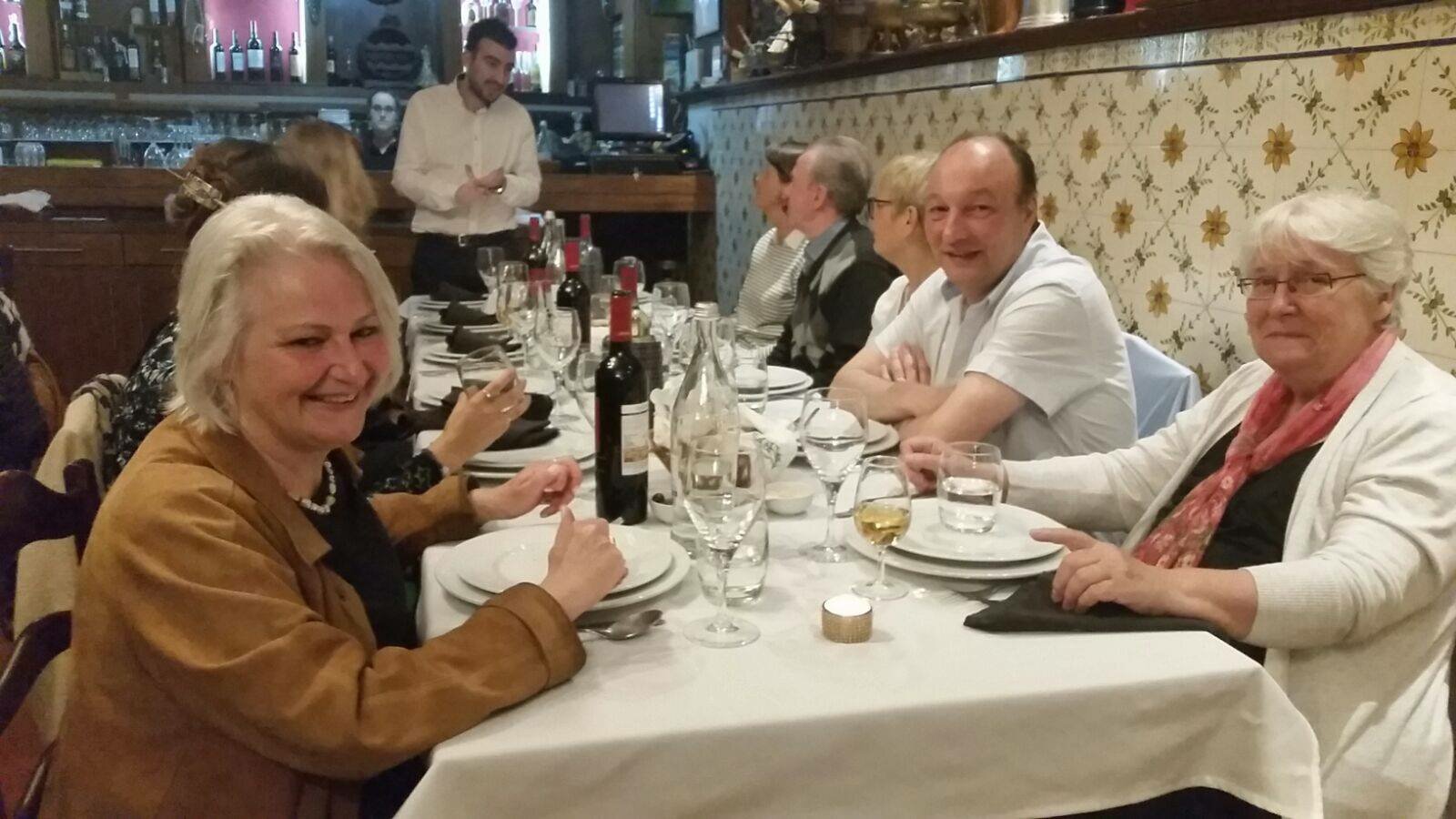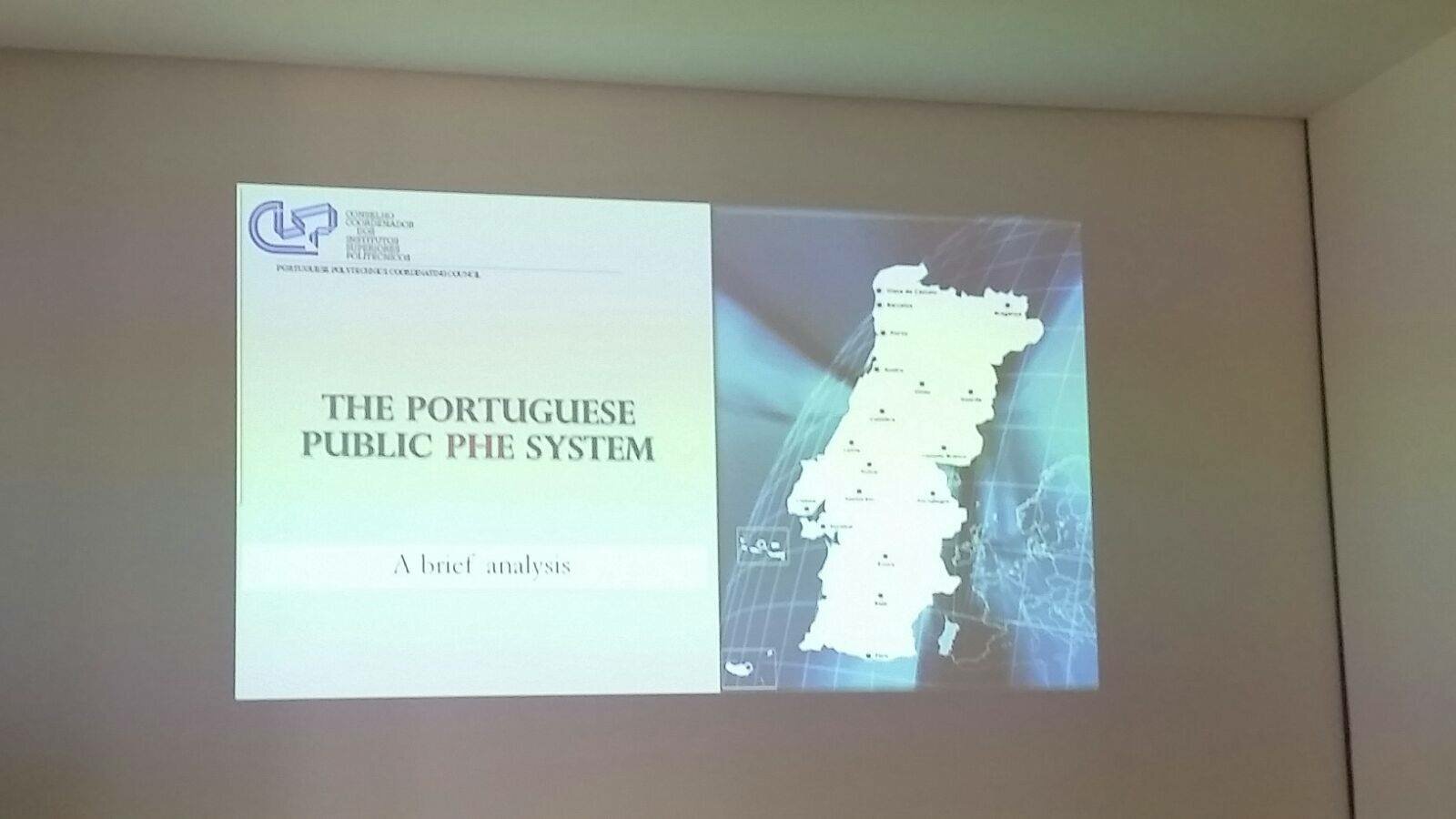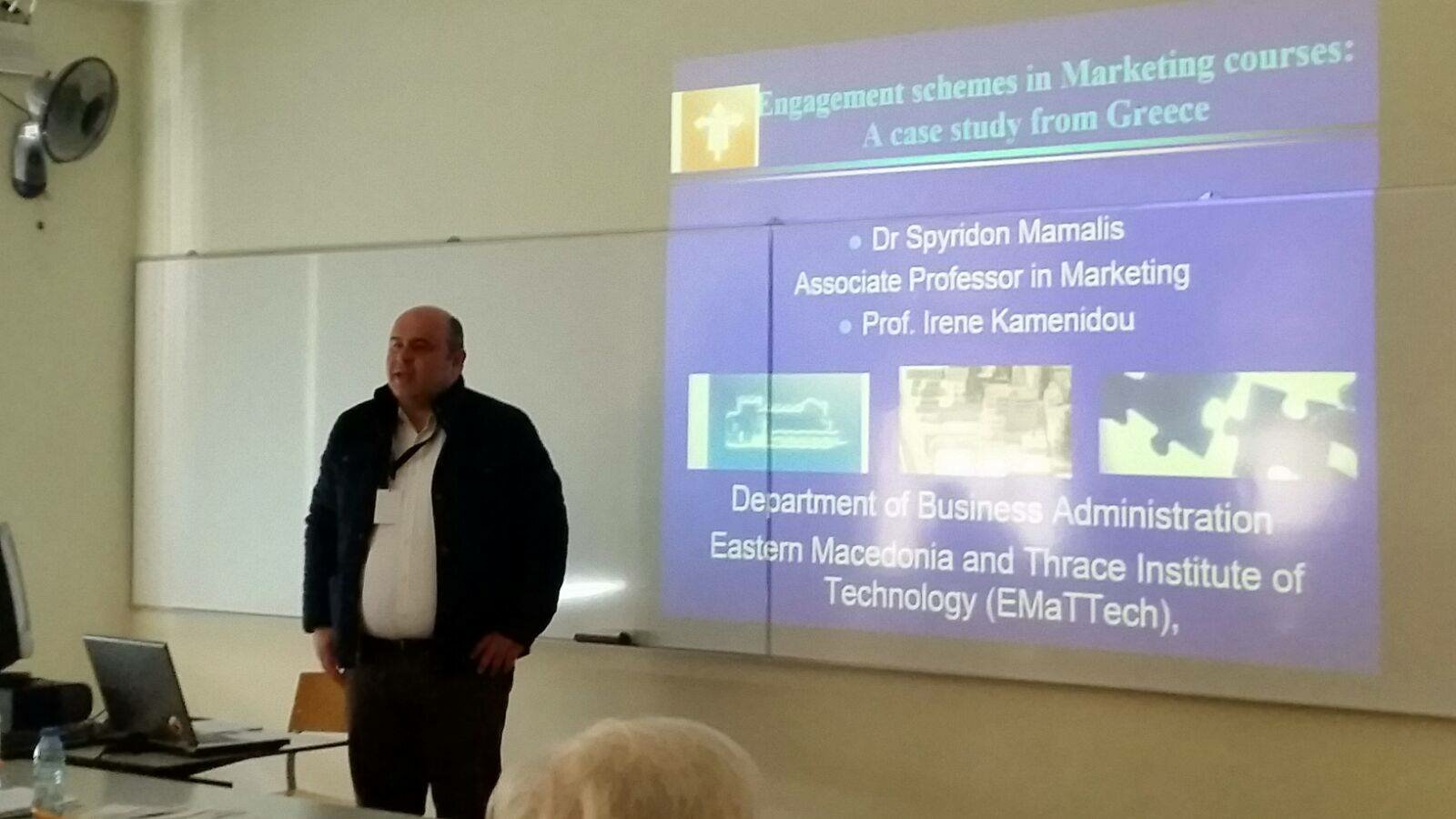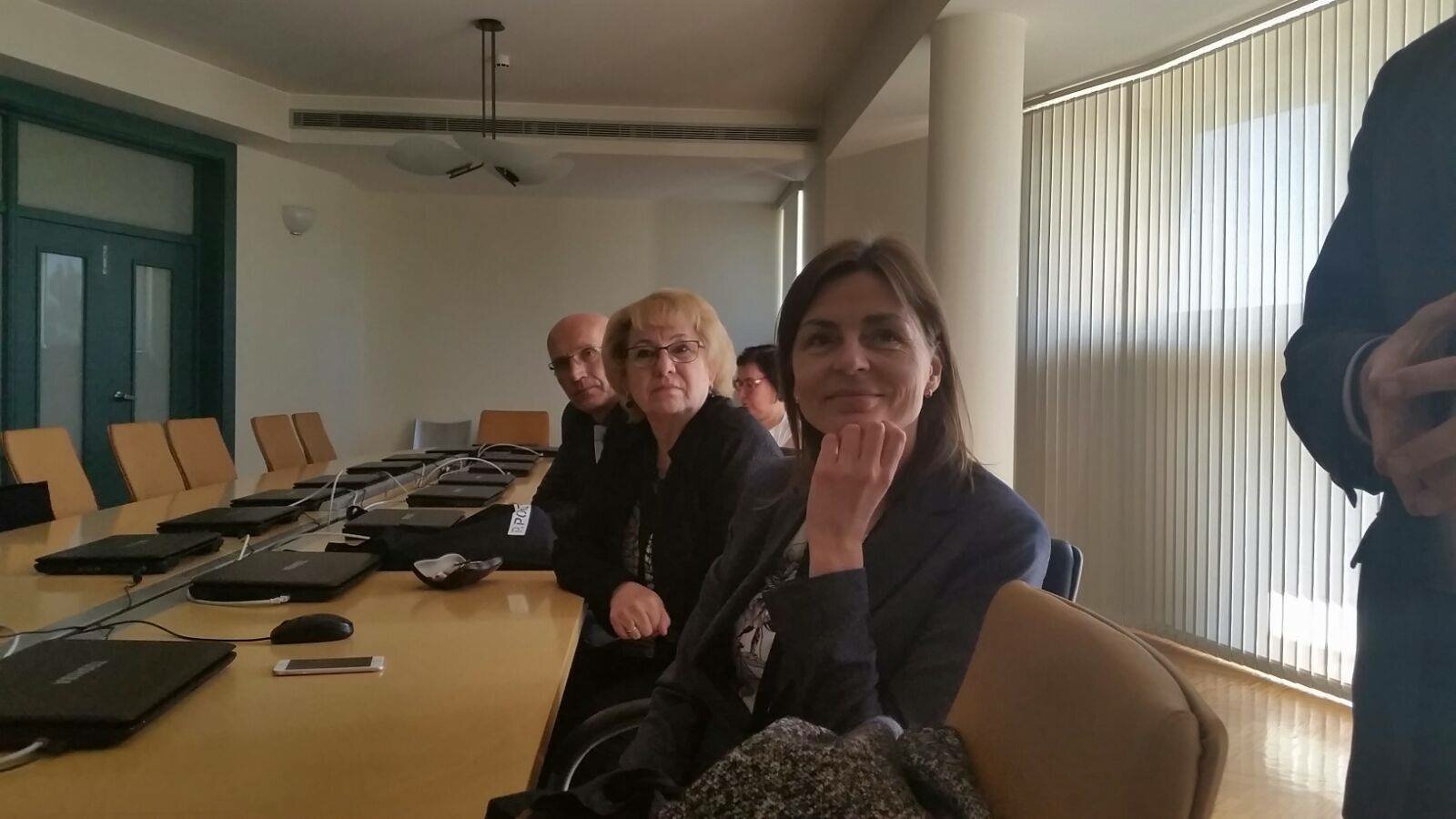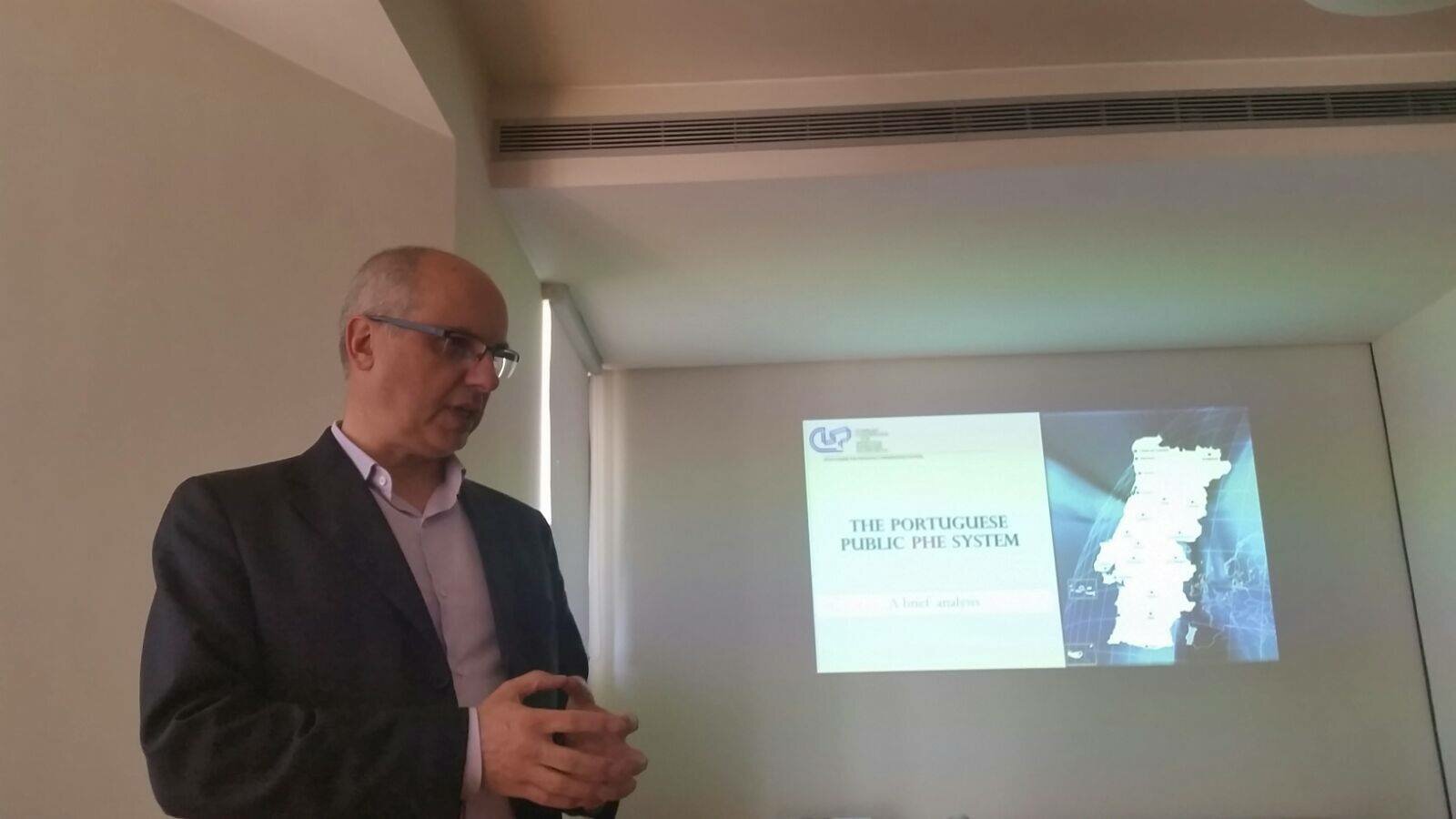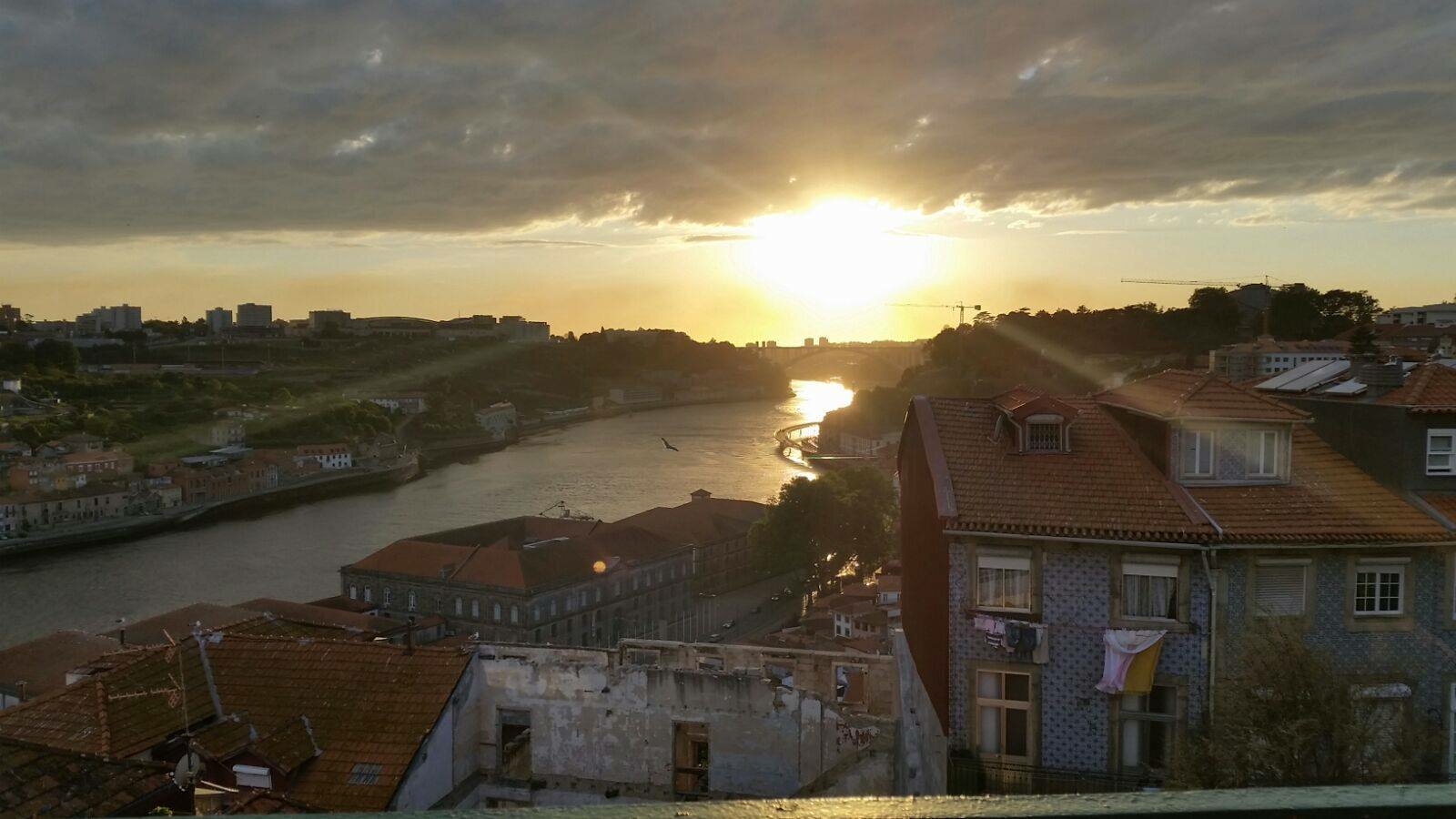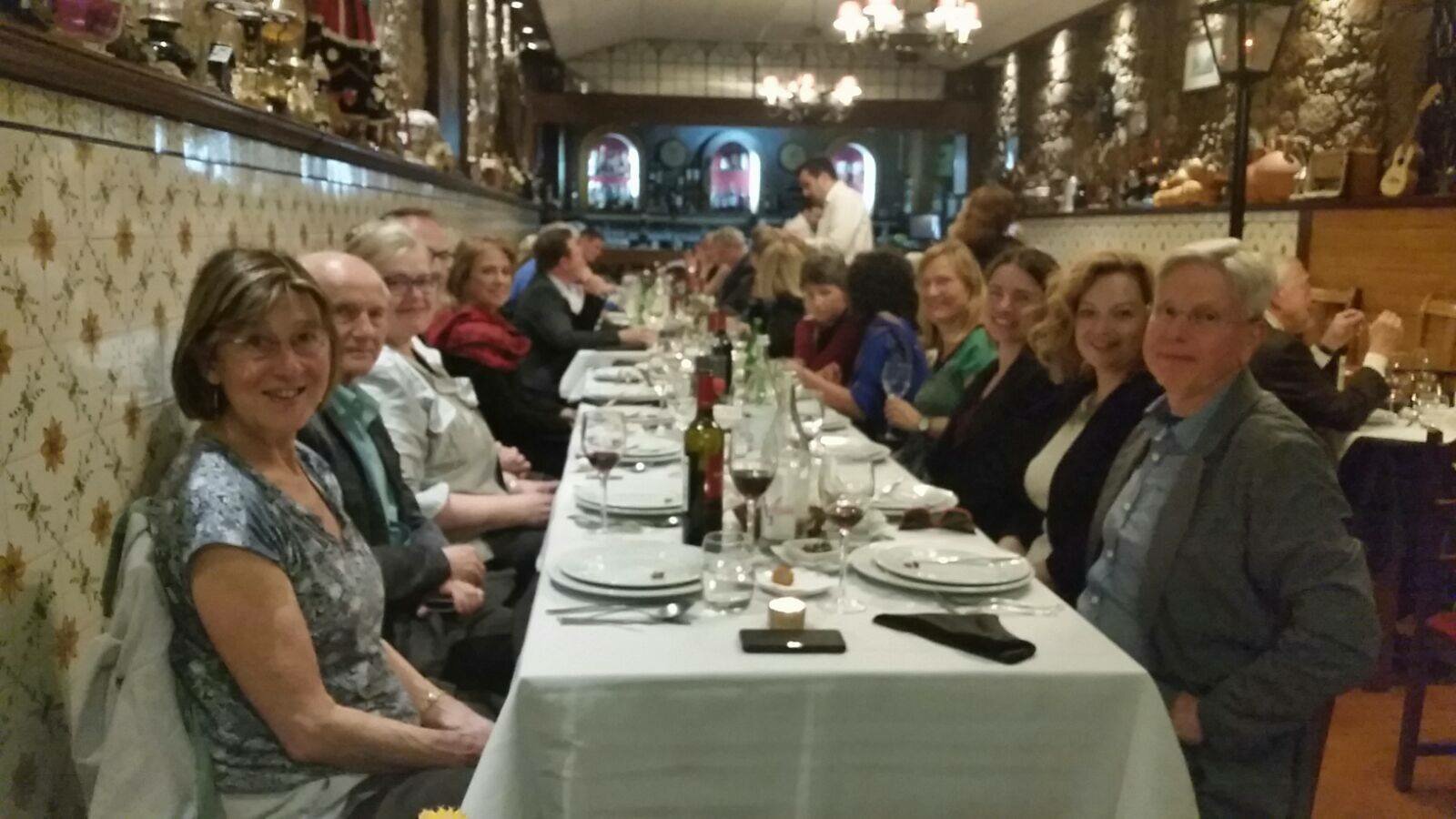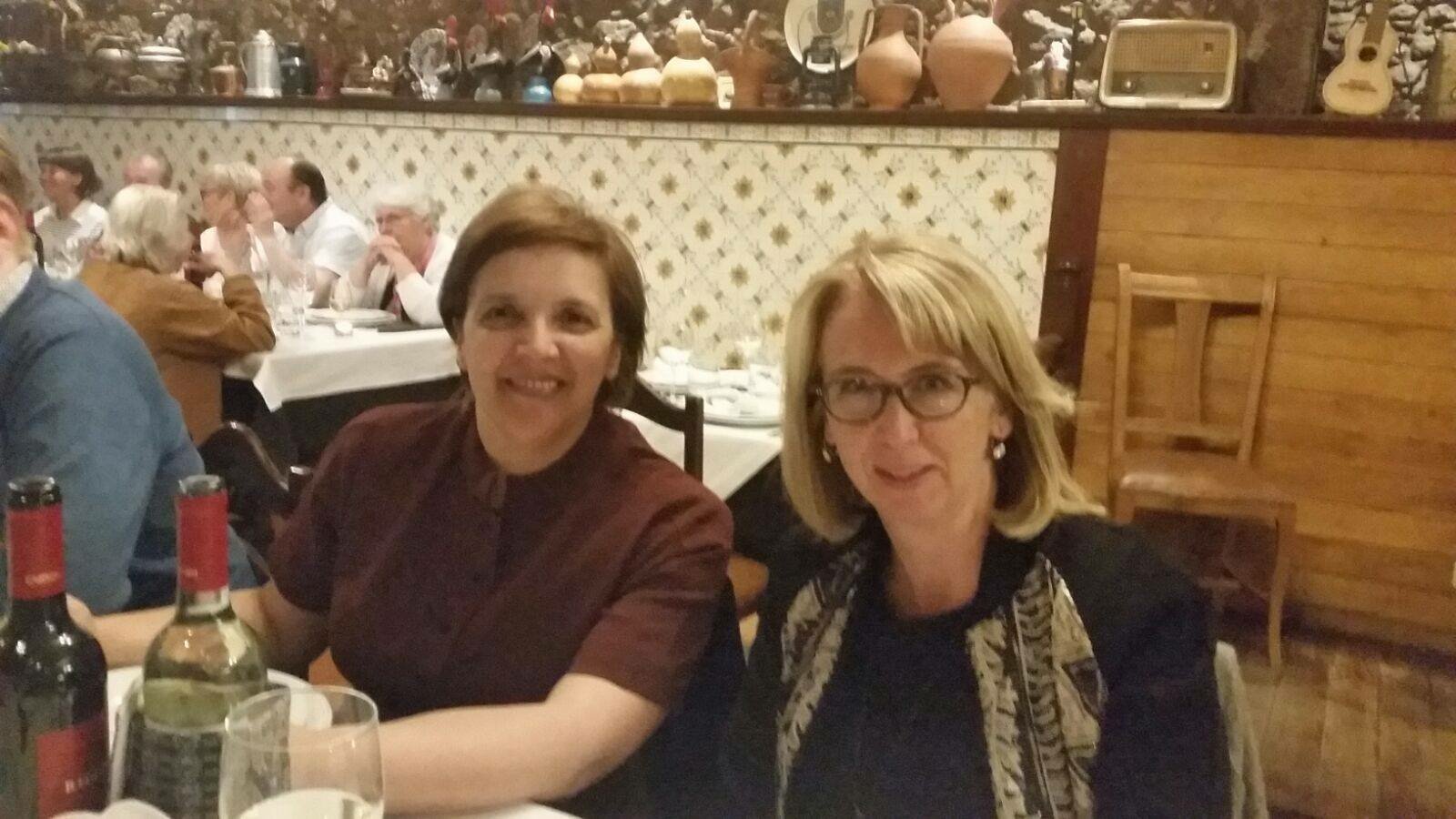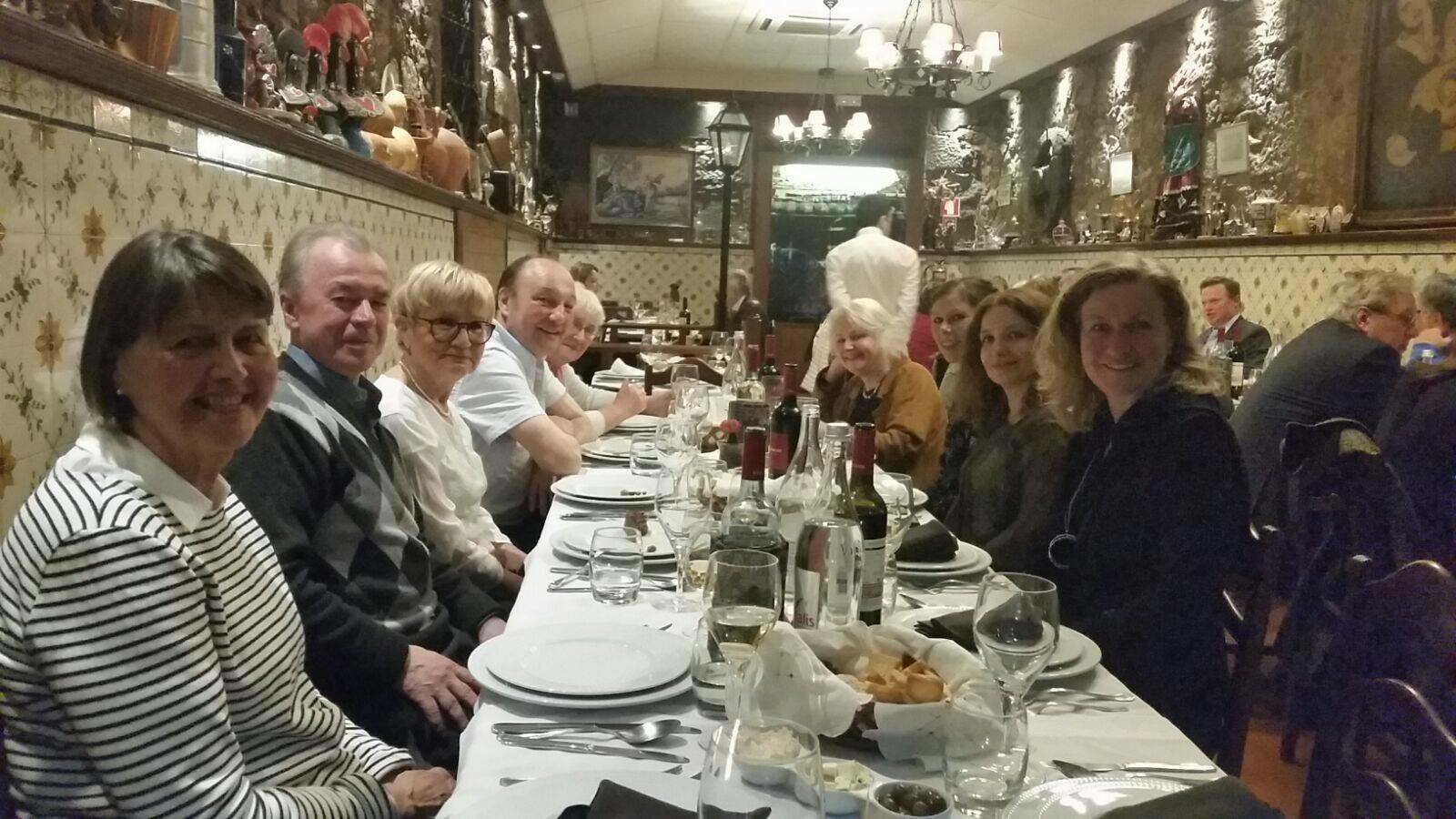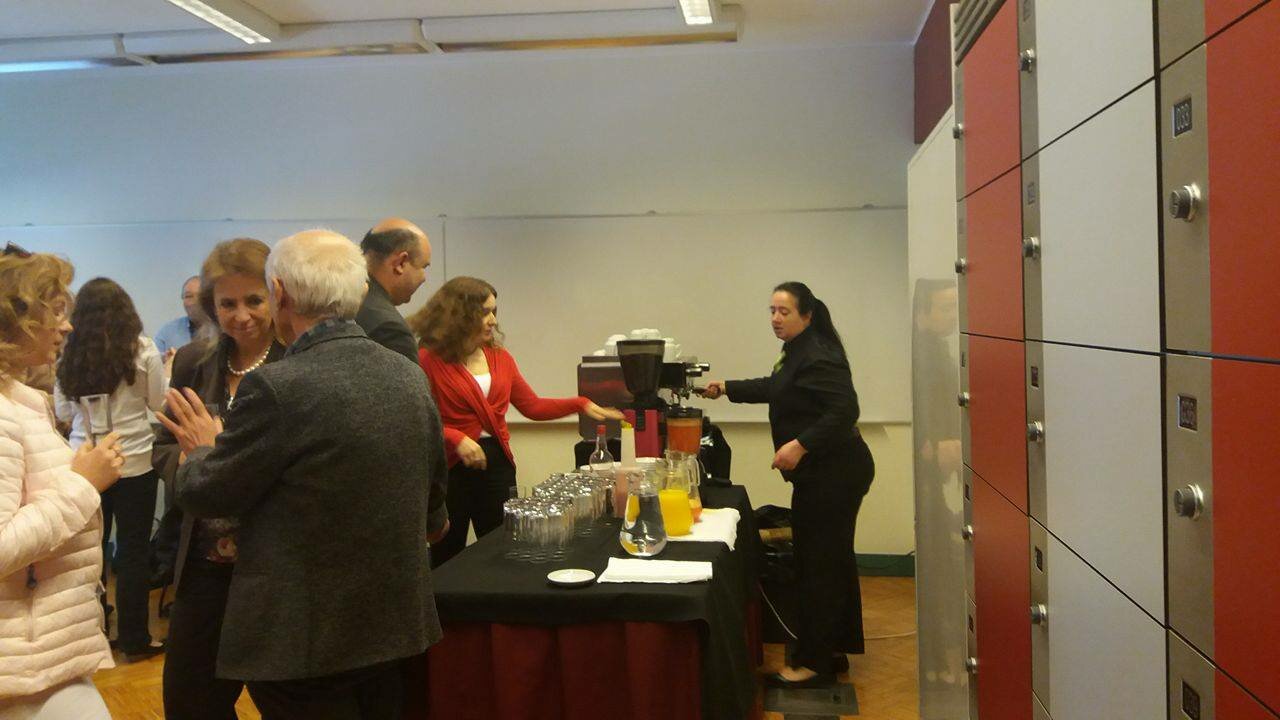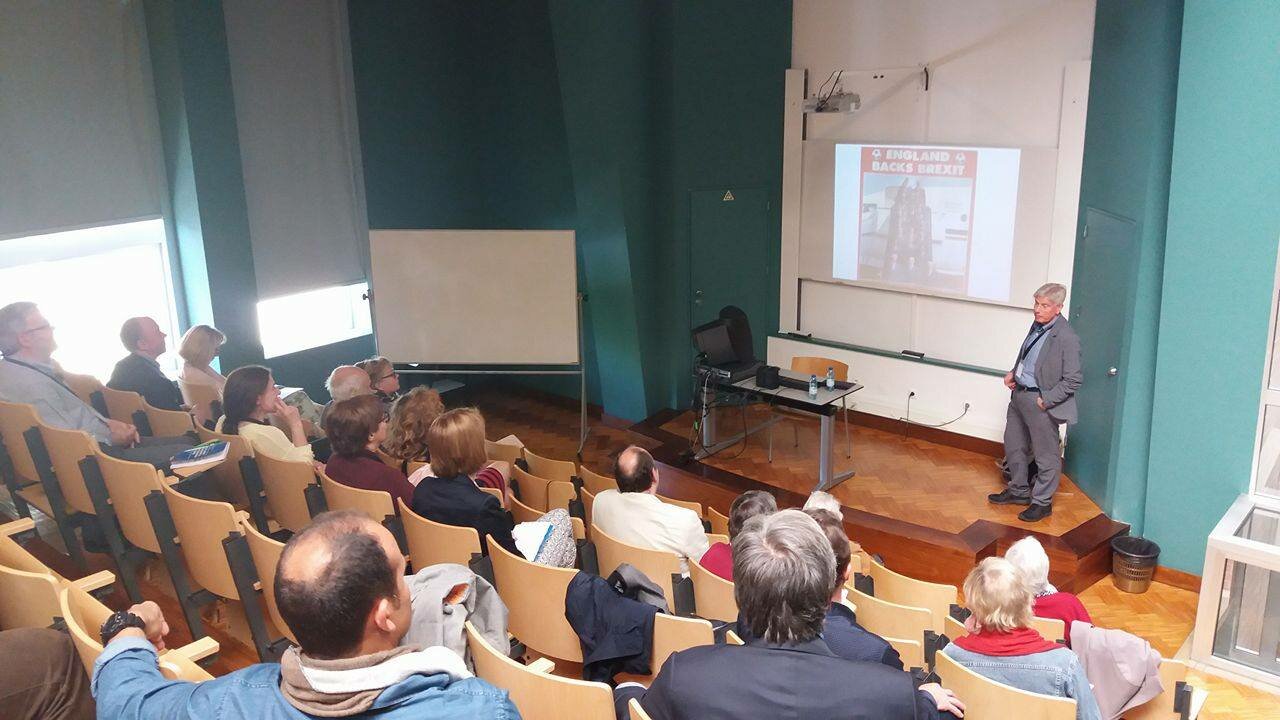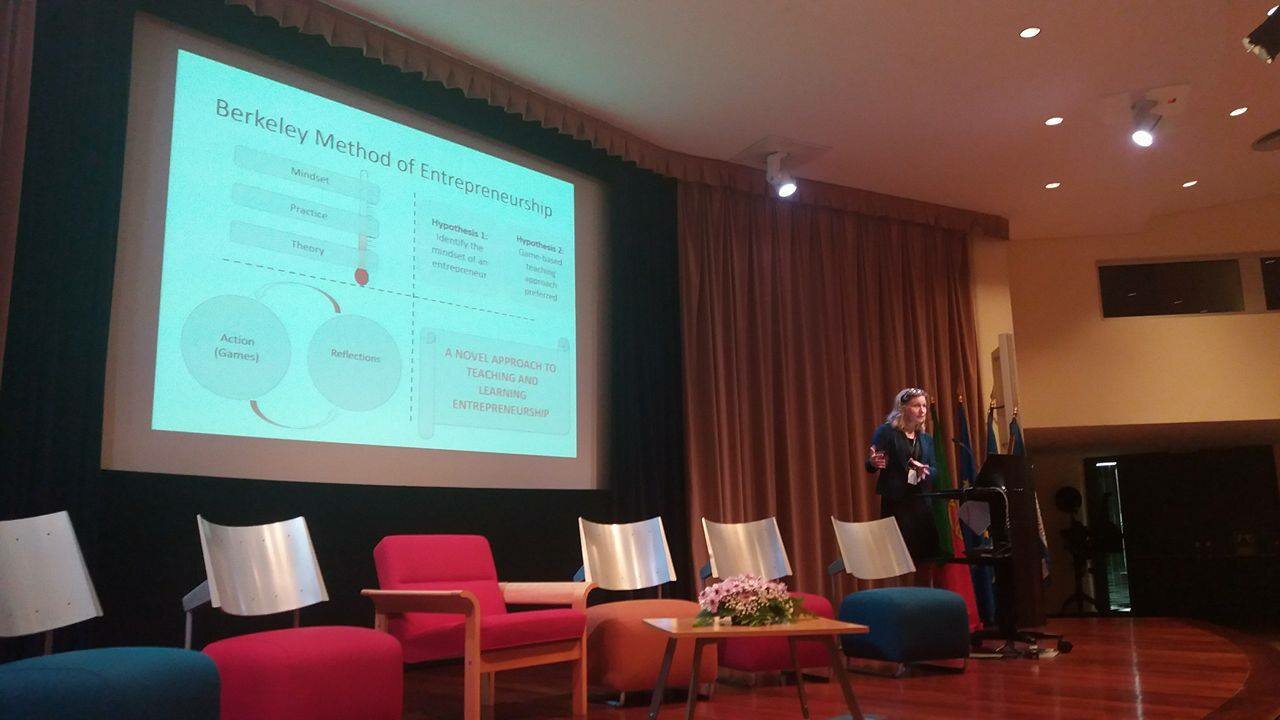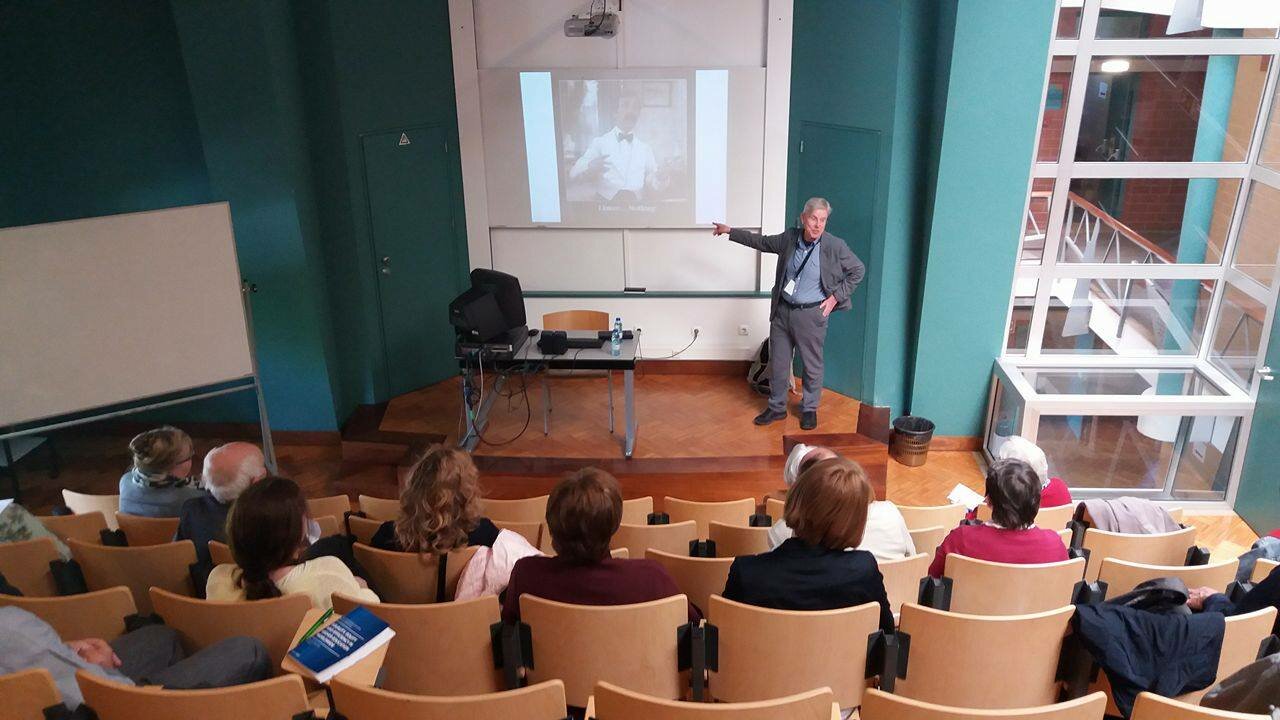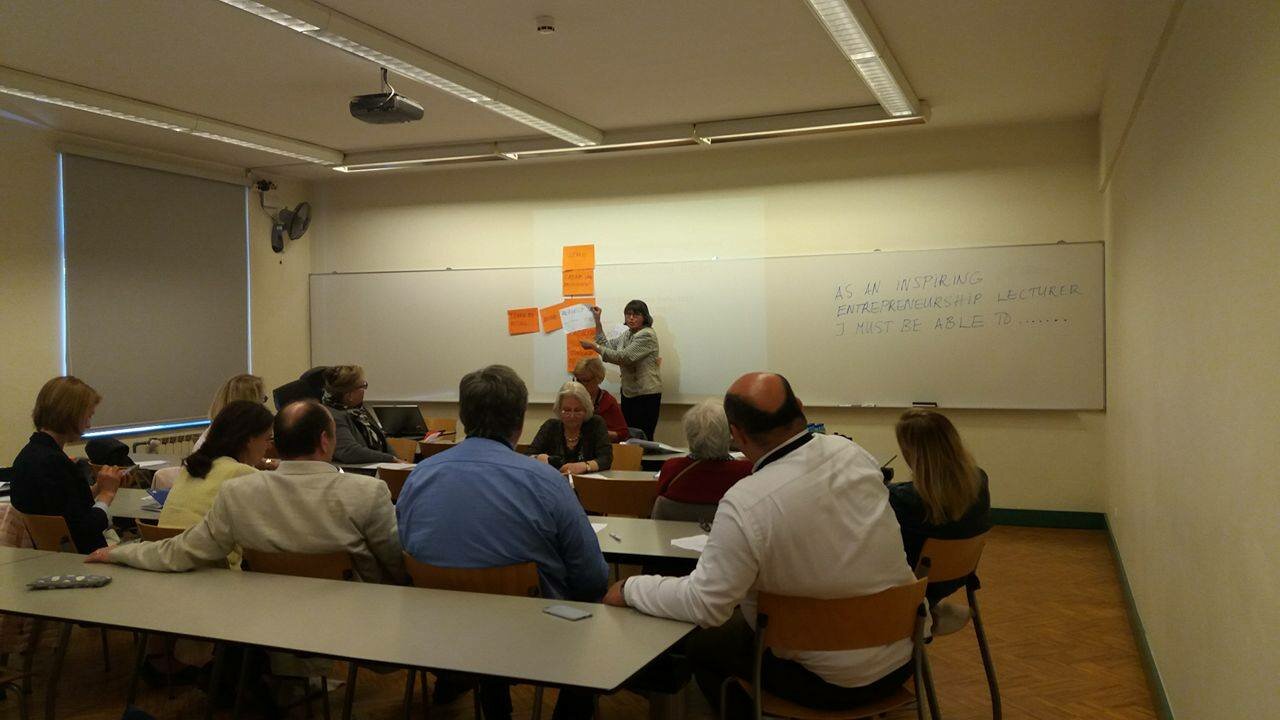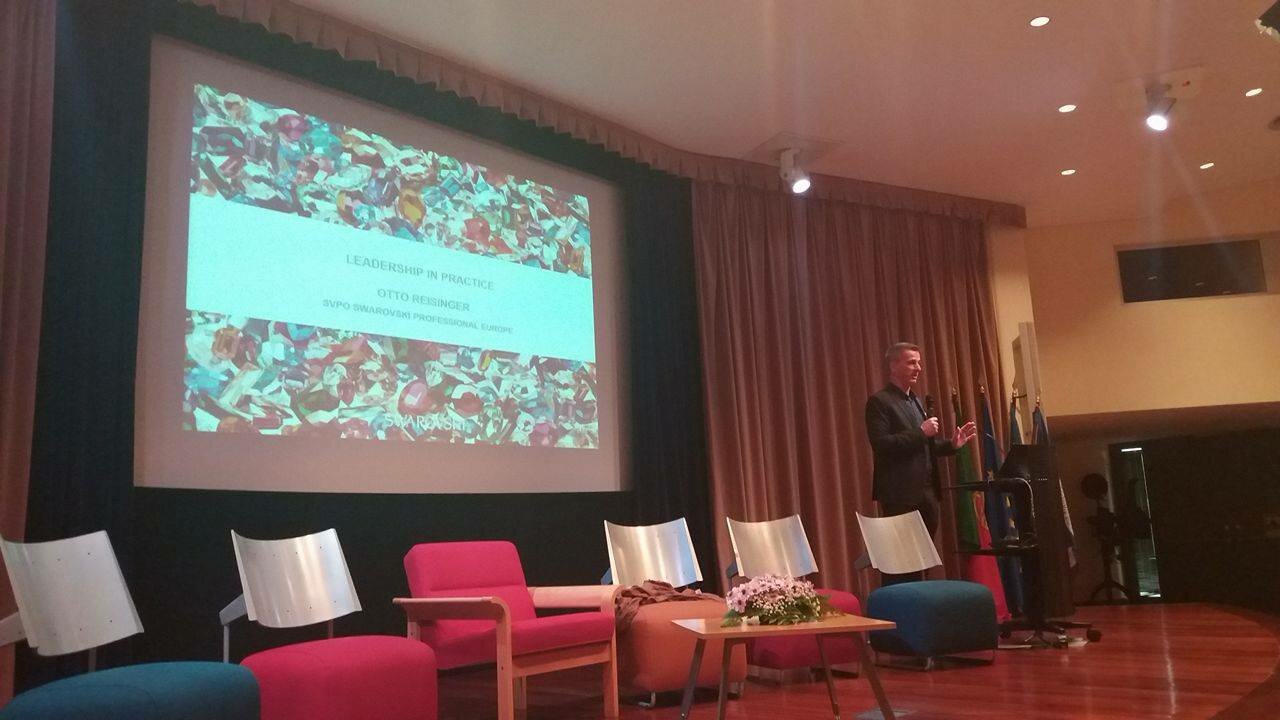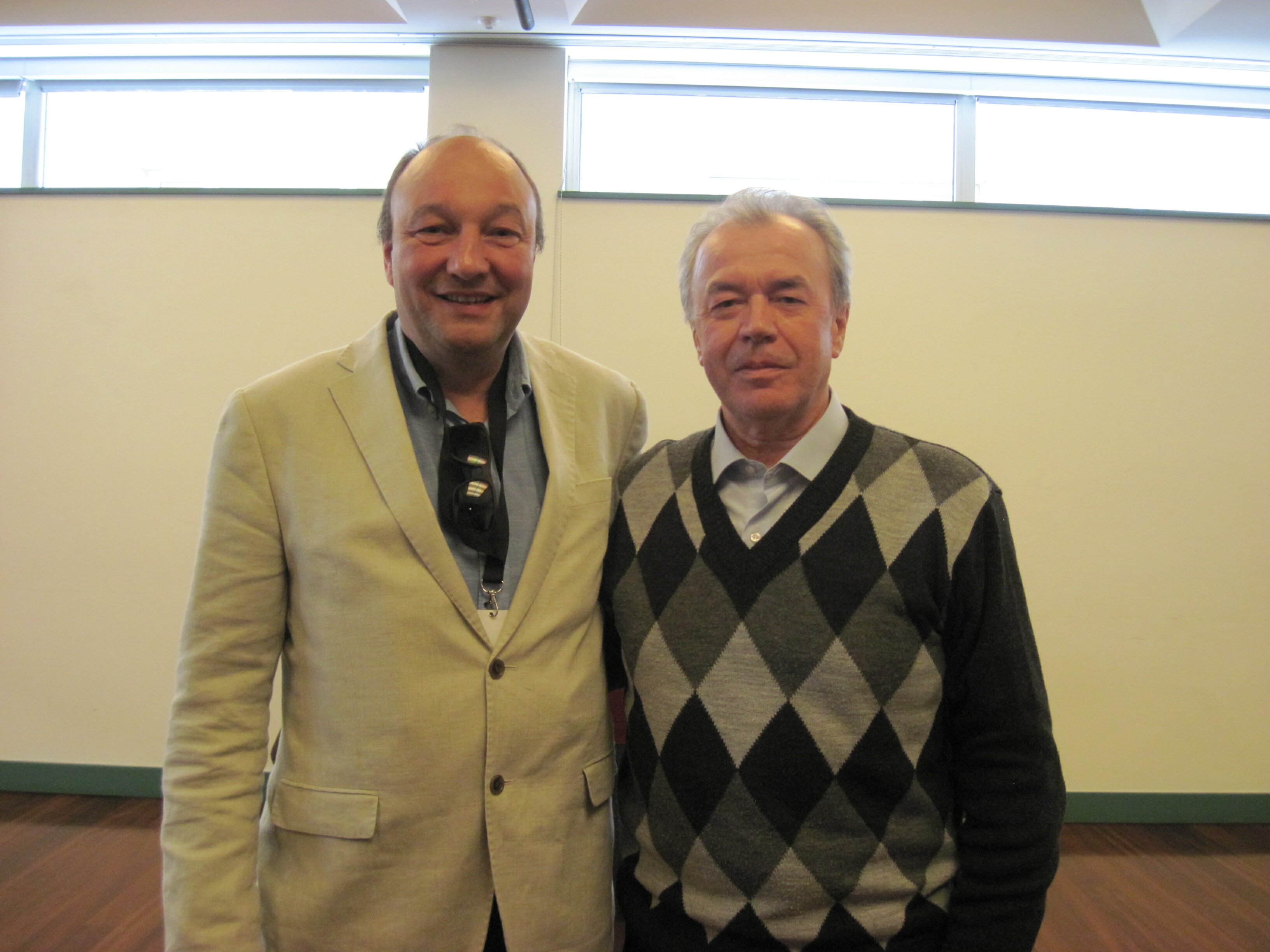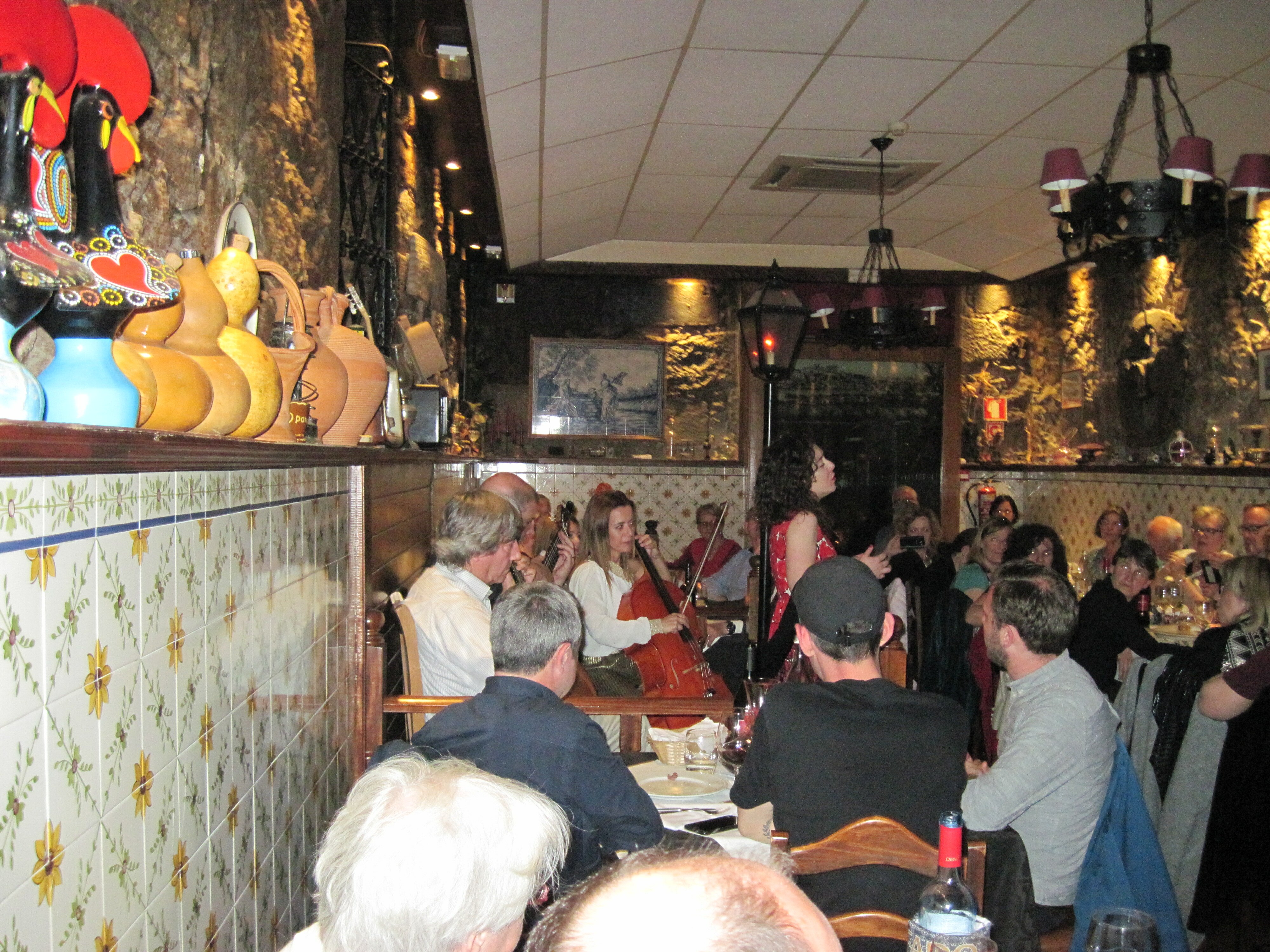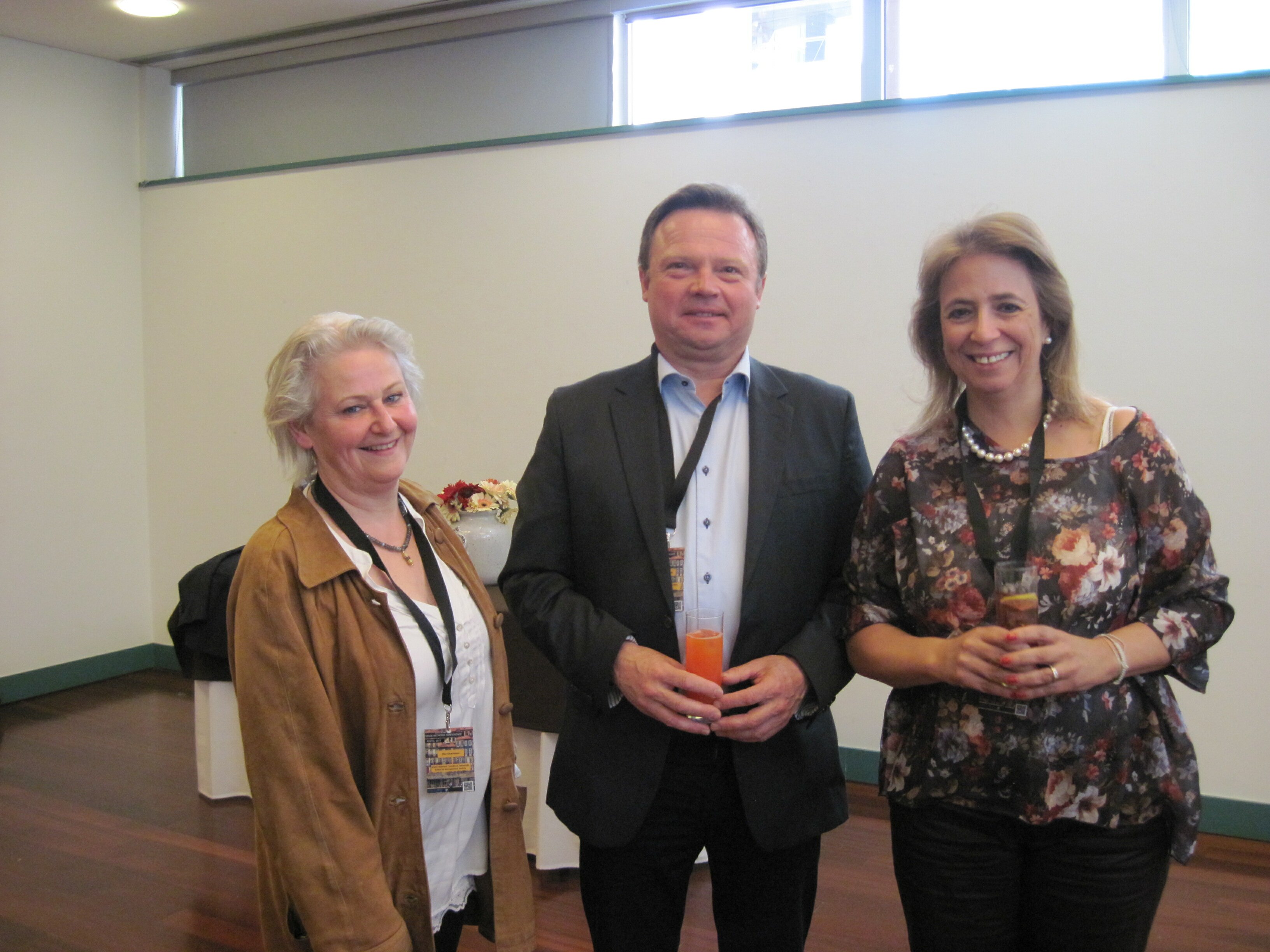Invitation
City : Porto
End date: 28-04-2017
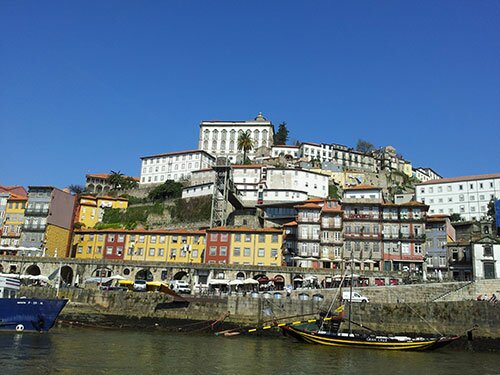
Dear SPACE members,
It is my pleasure to invite you to the SPACE conference, which will be held in Porto from April 26 till 28th April 2017, at ISCAP / IPP.
As the Dean of the Accounting and Business School of the Polytechnic Institute of Porto, it is a great honour to host this event of the SPACE network of higher education institutions. Our institution has been involved in this network for a long time and I must say that part of the credit of our internationalization is due to the initiatives, experience, projects and benefits that membership can offer.
During the conference, participants will have the opportunity to attend workshops, to meet researchers, to network and get to know the most updated research in different areas. Keynote speakers are also an excellent reason to participate. They will share their knowledge concerning practical solutions to be implemented in teachers’ classes as well as share their professional experience. Moreover, Porto has been recognized as one of the Best Touristic European Destinations. And if it was not for other reasons, Porto itself if a reason enough for someone to visit the city.
Our School as more than 4300 students and about 280 teachers. It is considered the most International School of the Polytechnic of Porto. We offer several undergraduate and graduate programs related with accounting, business, communication, marketing, entrepreneurship and languages. We have 2 research centres – one related with intercultural studies and the other one focused on organizational and social studies. In the last 10 years we have already participated in more than 35 European projects, both as coordinator and as a partner. SPACE Conference will be, without doubt, an excellent opportunity to improve knowledge sharing, networking and research and project development.
Please, accept our invitation and join us here, in this historical city
Best regards,
Olimpio Castilho
Dean
Venue
ISCAP Accounting and Business School
Porto Accounting and Business School belongs to Portugal’s largest and most prestigious public Polytechnic Institute: Porto Polytechnic (P.PORTO). ISCAP is located in S. Mamede de Infesta (Matosinhos), very close to P.PORTO Campus, and offers its 4,000-strong student population a range of innovative undergraduate and graduate programs in Accounting, International Commerce, Marketing, Business Communication, Tourism and Hospitality, Management and Administrative Assistance and Translation, Creativity and Business Innovations, Human Resources and Library and Information Sciences and Technologies.
ISCAP also offers Master Programs in Specialized Translation and Interpreting, Accounting and Finance, Auditing, Organizational Management, Digital Marketing, Logistics, Entrepreneurship and Internationalization, Organizational Management, Logistics, Administrative Assistance, Digital Marketing, Business Information, Human Resources, Finance and Intercultural Studies for Business.
Several double Diplomas have been developed during the last years with some of our partners too.
It is a national reference as far as business sciences are concerned, namely through the courses of Enterprise Simulation (ES) which, besides exempting students from the internship required to access the Chamber of Chartered Accountants, aims to provide a demanding, complex, universal and technologically advanced business environment. Apart from this, ISCAP is equipped with modern and technologically advanced Multimedia, Education and Marketing Centers.
Over the years ISCAP has tried to increase its international experience and has developed a broad network of global partnerships and has been a partner is several international networks, such as AFECA, SPACE, EdiNeb, Acinnet and others.
Moreover, we have been managing since long years SOCRATES/Life Long Learning/ ERASMUS+ Program, namely many ERASMUS, MINERVA, LEONARDO and GRUNDTVIG projects.
The number of outgoing and incoming students (both Erasmus, exchange, and free-mover) has increased significantly over the years. Besides, during our International Weeks we welcome visiting lecturers and our partners’ representatives, which has contributed to the “Internationalisation at Home” process and to the establishment of enduring academic and scientific bonds amongst lecturers and researchers.
At ISCAP, we take both the academic and personal needs of our international students and lecturers very seriously, and we continually strive to provide a dynamic and stimulating teaching and learning environment.
We look forward to meeting you.
Rua Jaime Lopes Amorim
4465-004 Matisinhos
Porto
Portugal
Programme
26 April 2017
Abstract and programme book Conference 2017
|
Room |
Time | Activity |
Subject |
| Meeting Room, 3rd Floor | 12:00 – 13:00 |
Board meeting |
|
| Meeting Room, 3rd Floor | 14:00 – 14:30 |
Coffee and welcome |
|
| Meeting Room, 3rd Floor | 14:30 – 15:30 |
Council meeting |
|
| Room 211, 2nd Floor | 15:30 – 17:30 |
Workshops Sandra Ribeiro (PT) |
“(Digital) Storytelling in Higher Education” |
| 19:30 |
Dinner for Council and Board members at Torreão restaurant |
||
27 April 2017
| Room | Time | Activity |
Subject |
| Main Auditorium, Groundfloor | 09:00 – 09:15 |
Welcome session by the President of SPACE and the Dean of ISCAP
|
|
| Main Auditorium, Groundfloor | 09:15 – 10:00 | Keynote speaker 1: Charlotta Johnsson (SE) |
“Berkeley Method of Entrepreneurship – A game-based and mindset focused approach for teaching and learning entrepreneurship” |
| Main Auditorium, Groundfloor | 10:00 – 10:45 | Keynote speaker 2: Otto Reisinger (AT) |
“What we look for in young graduates and what we actually find” |
| “Sala de Atos”, Groundfloor | 10:45 – 11:15 |
Coffee break |
|
| Room 15, Groundfloor |
11:15 – 12:45 |
Session 1: paper presentations |
|
| 11:15 – 11:45 | Paper 5: Vicky Franssen, Karijn Bonne (BE) |
“Which tools about marketing ROI do Belgian SME’s need the most?” |
|
| 11:45 – 12:15 | Paper 1: Felipe Flausino, Sidney Vergino, Jeferson Ferreira, Alan Prado, Fabricio Pelloso Piurcosky (BR) |
“Brazilian Higher Education: an overview of merges and acquisitions” |
|
| 12:15 – 12:45 | Paper 7: Irene Kamenidou, Spyridon Mamalis (GR) |
“Engagement schemes in Marketing courses: A case study from Greece” |
|
| “Sala de Atos”, Groundfloor | 12:45 – 14:00 |
Lunch |
|
| Room 211, 2nd Floor | 14:00 – 15:30 | Workshop Pirjo Takanen-Körperich and Hely Westerholm (FI) |
“DACUM method” |
| Amphiteather 3, Groundfloor | 15:30 – 16:15 |
Keynote speaker 3: Ian Charles (DK) |
“Brexit and the implications for university collaboration” |
| “Sala de Atos”, Groundfloor |
16:15 – 16:45 |
Coffee break |
|
| Room 15, Groundfloor |
16:45 – 18:15 |
Session 2: paper presentations |
|
| 16:45 – 17:15 | Paper 2: Alexandre Duarte, Teresa Ruão (PT) | “The attraction of Education: National stereotypes and study destination choice” | |
| 17:15 – 17:45 | Paper 3: Niall Corcoran, Aidan Duane (IE) | “Management support for staff knowledge sharing in higher education institutions” | |
| 17:45 – 18:15 | Annemie van den Dries | “How to write a KA2 project, hoping it will be successful!” | |
|
20:00 |
Gala dinner at Restaurante O Fado |
||
28 April 2017
| Room | Time | Activity |
Subject |
| Room 15, Groundfloor | 09:00 – 10:30 |
Session 3: paper and poster presentations |
|
| 09:00 – 09:30 | Paper 8: Teresa Paiva, Pedro Tadeu (PT) |
“Entrepreneurship education: A case of creativeness and entrepreneurship empowerment” |
|
| 09:30 – 10:00 | Paper 10: Ilgez Sinagatullin (RU) |
“In a Whirlpool of Globalisation: Developing pre-service teachers’ global competence” |
|
| 10:00 – 10:30 | Paper 14: Julia Claxton (GB) |
“Using Phenomenography to understand the construct of engagement” |
|
| Paper 4 (Poster): Karijn Bonne (BE) |
“Otherpreneurship: Unique business models of Belgian SME’s” |
||
| “Sala de Atos,” Groundfloor | 10:30 – 11:00 |
Coffee break |
|
| Room 15, Groundfloor | 11:00 – 12:40 |
Session 4: abstract presentations |
|
| 11:00 – 11:20 | Paper 9: Matthew Wilson (GB) | “Development of an instrument to improve tutor reflection of individual student difference” | |
| 11:20 – 11:40 | Paper 12: Christine Daley (GB) | “Literature review on transcendental and hermeneutics phenomenology” | |
| 11:40 – 12:00 | Paper 13: Helen Thompson (GB) | “A review of the internationalization of hgher education literature: a UK perspective” | |
| Room 15, Groundfloor | 12:00 – 12:30 |
Closing session |
|
| “Sala de Atos,” Groundfloor | 12:30 – 14:00 |
Lunch |
|
| Room 15, Groundfloor | 14:00 – 15:00 | Annual General Meeting | |
| “Sala de Atos,” Groundfloor | 15:00 – 16:00 |
Farewell reception |
|
| Meeting Room, 3rd Floor | 16:00 – 17:00 | Board meeting | |
Accommodation
Hotel recommendations:
The Axis Port Business & SPA Hotel, is the a 4-star hotel of the AXIS Group, located at a 10 minutes walking distance from ISCAP”, near the Hospital S. João. This modern hotel has 145 rooms – which include 16 junior suites, 4 Senior Suites and 1 Presidential Suite – soundproofed and comfortably equipped with LCD’s with several TV channels and Video The modern ‘SPA’ is equipped with a pool, sauna, Turkish bath, shower sensory and gym. Several programs of relaxation, massages and treatments available to its customers.
This is a busy Hotel, so you should make your reservation very soon and inform that you are coming to an event taking place at ISCAP to get the negotiated rates.
Eurostars OPorto Hotel
The Eurostars Oporto Hotel is a modern, newly-built hotel boasting an optimal, strategic location very near the main entrances to the city and just 15 minutes from the airport and about 25 minutes from ISCAP. The modern, attractive building houses a highly functional hotel in Oporto with 64 apartments, along with 6 meeting rooms, a restaurant, bar, television room, business centre and two parking zones (one indoor and one outdoor).
This is a busy Hotel, so you should make your reservation very soon and inform that you are coming to an event taking place at ISCAP to get the negotiated rates.
A strictly non-smoking hotel, it offers direct access to the city’s historic center via the metro station. 30 minutes walking distance from ISCAP.
Tourist information
- Located along the Douro river in Northern Portugal, Porto is one of the oldest European cities, and its historical core was proclaimed a World Heritage Site by UNESCO in 1996.
- The western part of its urban area extends to the coastline of the Atlantic Ocean.
- Porto was, for the 3rd time, awarded the label of European Best Touristic Destination 2017.
- The average temperature in Porto for the month April lies between 18°C and 9°C.
- The currency of Portugal is Euro (EUR).
- The local time in Porto will be Central European Summer Time (WET/GMT+1).
- For more info about Porto, go to
AIRPORT
The airport of Porto is called Aeroporto Francisco Sá Carneiro. It is located about 12 km from the city center. A trip from the airport to the city by taxi will take between 20 and 30 minutes and will cost you between 20 and 30 euros. Beside taxi services, there are several transport possibilities available, of which the urban train (Metro) is the fastest. You can walk to the Metro Station from inside the Airport building, by walking through an underground passage. Take line E (violet) to go from the Airport Station to the city center. Get off the train at the Bolhão station. To go to ISCAP, get off the train one stop further, the Trindade station. From there, take line D (yellow) and take the direction of Hospital de S. João. To know more about the kinds of metro tickets and their prices, go to http://en.metrodoporto.pt/pages/397
The Metro (urban train) Station closest to ISCAP is Hospital de S. João Station. From there you can walk or catch a bus to ISCAP.
The Trindade Station has connection with the rest of the urban train network.
Map of ISCAP
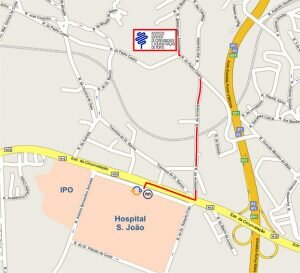
From the city centre
Bus: 600 (Maia), 506 (Matosinhos – Praia).
The fastest way is by Metro (urban train): Line D (Hospital S. João).
From the airport
Line E (Violet) connects the Airport Station to the Estádio do Dragão Station. The Airport Station is located right in front of the Arrivals of the International Francisco Sá-Carneiro Airport. Nevertheless, pedestrian access is guaranteed by an underground passage extending from the inside of the Airport to the Station itself, which is simple and practical to find with the help of clearly visible.
Connection Airport-City centre
If you want to go from the Airport Station to the Bolhão Station you must buy a z4 ticket and get on at Line E.
Connection Airport-ISCAP
The ticket is the same but a change in Trindade Station is required. After going from the Airport Station to the Trindade Station, change to line D (Yellow) and take the direction of Hospital de S. João.
Please find here a map of the metro stops: mapa_metro
Speakers
Charlotta Johnsson
Associate professor Department of Automatic Control at Lund Universityhttp://www.control.lth.se/Staff/CharlottaJohnsson.html
Download CV
Country: Sweden
City: Lund
“Berkeley Method of Entrepreneurship – A game-based and mindset focused approach for teaching and learning entrepreneurship”
Entrepreneurship is often thought of as the act of commercializing an innovation. In modern open economies, entrepreneurship is one of the key aspects for economic growth. The teaching and learning entrepreneurship is therefore of importance. Schools, colleges and universities can play an important role by including entrepreneurship and innovation in their curricula. Theory, Practice as well as Mindset aspects are of importance when students learn about entrepreneurship. The Berkeley Method of Entrepreneurship (BMoE) stresses the importance of including aspects related to Mindset, and uses games as a vehicle for including it in the entrepreneurship education. The game-based teaching approach, including both actions and reflections, lets the students explore his/her current mindset and compare it with that of successful entrepreneurs.
Country: Austria/ Spain
City: Wattens/ Barcelona
“What we look for in young graduates and what we actually find”
Otto Reisinger will talk about the qualities young (potential) leaders should have and how he selects them for a multinational enterprise like Swarovski.
Nevertheless, he states that not everybody can become a leader and experts like e.g. business analysts are also needed and do not have a lower status than leaders. The most important decision according to him is to find the right career for young graduates.
In the question and answer part he will be happy to answer all questions from the audience.
Ian Charles
Associate Dean IBA, Visiting Professor London South Bank University, Vice-President Network of International Business Schoolshttp://www.iba.dk/international
Country: Denmark
City: Kolding
“Brexit: Opportunity or Threat – an exchange of views”
The result of the referendum in the UK on 23 June 2016 seemed to take both sides of the debate by surprise. Public reaction since then has ranged from ecstasy and celebration to denial and despair. At the time of writing at least, we seem to have little idea as to the future relationship between the UK and the EU. And while for many life may well go on as usual, for the sector in which we work there could be substantial changes with regard to research, staff/student mobility, employment and funding.
This brief session will explore the background to Brexit in the context of other world events – why it happened and why, perhaps, it was inevitable – and look at possible implications and even eventual opportunities for collaboration in the HE sector.
So far, those tasked with implementing Brexit either don’t know or are not sharing anything concrete regarding the future. Therefore, we cannot expect ourselves to come to any firm conclusions at this stage. But with the enormous goodwill that exists between different nations in this sector, we can surely endeavour to maintain and build on our collaborative assets built up over the past decades.
Country: Portugal
City: Porto
“(Digital) Storytelling in Higher Education”
Conference abstract
Abstracts
List of delegates
| First name | Last name | Organisation | |
|---|---|---|---|
| Alexandra | Albuquerque | ISCAP | |
| Auli | Nikmo | JAMK University of Applied Sciences | |
| Czeslaw | Nowak | Panstwowa Wyzsza Szkola Zawodowa w Tarnowie | |
| Elke | KITZELMANN | Innsbruck University School of Management | |
| ENNO | LEND | Foundation of Estonian Universities of Applied Sciences | |
| Faye | Mooney | International Business College Mitrovica (IBCM) | |
| Geert | BAEKELANDT | University College Ghent | |
| Hans | Mikkelsen | IBA International Business Academy | |
| Helen | Thompson | Leeds Beckett University | |
| HELLE | NOORVÄLI | Foundation of Estonian Universities of Applied Sciences | |
| Hely | Westerholm | DACUM Finland | |
| Ian | Charles | International Business Academy | |
| Ilgiz | Sinagatullin | Birsk Branch of Bashkir State University | |
| JAANUS | JAKIMENKO | Foundation of Estonian Universities of Applied Sciences | |
| JANA | PRAUN | Foundation of Estonian Universities of Applied Sciences | |
| Jean-Marie | Maes | Space Network | |
| JULIA | claxton | Leeds Beckett University | |
| Julie | Verstraeten | SPACE Network | |
| Karijn | Bonne | Artevelde University College | |
| KATRI | RAIK | Foundation of Estonian Universities of Applied Sciences | |
| Luc | Broes | SPACE network | |
| Machteld | Weyts | Artevelde University College Ghent | |
| Marina | Weissenborn | DHBW Karlsruhe | |
| Mirjana | Krsmanovic Vlajic | International Business College Mitrovica (IBCM) | |
| Murielle | Thunus | Henallux - Haute Ecole de Namur-Liège-Luxembourg | |
| Niall | Corcoran | Limerick Institute of Technology | |
| Otto | Reisinger | Swarovski | |
| Paulina | Bednarz | Panstwowa Wyzsza Szkola Zawodowa w Tarnowie | |
| PEETER | LORENTS | Foundation of Estonian Universities of Applied Sciences, | |
| Pirjo | Takanen-Körperich | DACUM Finland | |
| SPYRIDON | MAMALIS | EASTERN MACEDONIA AND THRACE INSTITUTE OF TECHNOLOGY | |
| Teresa | Paiva | Instituto Politécnico da Guarda | |
| ÜLLE | ERNITS | ESTONIAN RECTORS CONFERENCE OF UAS\ | |
| VALERI | NUUST | Foundation of Estonian Universities of Applied Sciences | |
| Vincent | De Preter | Bravooh |
Registration
Results
- SPACE Network presentation
- How to write a KA2 project, hoping it will be successful! - Annemie van den Dries
- Brexit_Opportunity or Threat - Ian Charles
- Leadership in practice - Otto Reisinger
- Berkeley method of Entrepreneurship - Charlotta Johnsson
- The attraction of Education - Alexandre Duarte
- Which tools about marketing (ROI) do Belgian micro SMEs need the most - Karijn Bonne
- A Literature Review on Transcendental and Hermeneutic Phenomenology - Christine Daley
- Management Support for Staff Knowledge Sharing in Higher Education Institutions - Niall Corcoran
- Engagement schemes in Marketing courses, A case study from Greece - Spyridon Mamalis
- A review of the internationalisation of higher education literature and statistics, a UK perspective - Helen Thompson
- (Digital) Storytelling in Higher Education - Sandra Ribeiro
Guidelines full papers

Dear author,
We are delighted that you are going to submit your paper or poster to the SPACE conference!
Submissions are welcome which relate to the general Conference Theme under the following topics
- Higher Education Leadership, Governance and Operational Practices
- Higher Education Pedagogy and Technologies
- Higher Education Collaborative Projects
- Entrepreneurship and Innovation
- Student Engagement, Diversity and Employability
- Internationalization of Higher Education
Types of Submissions
- ABTRACTS. Briefly covering title, purpose of research, key informing literature, methodological approach, findings or part findings and conclusions or recommendations for next stage of work 1000 words max (excluding reference list)
- Refereed Long papers. Finished or consolidated R&D works : 4000 words max (excluding reference list)
- Refereed Working/Work-in-Progress. Ongoing works with relevant preliminary results: 2500 words max (excluding reference list)
- Poster Presentations. Initial work with relevant ideas, opened to discussion: A1 size (or 6 x A4)
- Master/Doctoral submission: 2000 words max (excluding reference list)
All abtracts/papers will be “blind reviewed” by at least two members of the Scientific Committee.
Call for papers/posters
At Porto Accounting and Business School, Portugal
April 26th-28th 2017
The authors of accepted poster papers must build and print a poster to be exhibited during the Conference. This poster must follow an A1 or A2 vertical format. The Conference includes Work Sessions where these posters are presented and orally discussed, with a 5-minute limit per poster.
Submissions must comply with the detailed specifications
1. Writing specifications
Paper/ Poster Title – max 12 words – in capitals – calibre 14 – centred – bold
2. Keywords
Max 6 keywords which will help people search for your article
3. Abstract (1.5 line spacing)
Max 250 words and must provide details under the following headings:
- purpose of research;
- methodology;
- findings;
- implications
4. Acknowledgments
Acknowledgments of funding organisations or any other organization, entity, person (single linespacing)
- Your PAPER/POSTER should be in Word format ending in .doc or .docx – no other format is acceptable
- Margins should be 1.5 inch left side and 1 inch right side on each side of A4 – posters may be bigger size paper but must have at least this margin
- Main body of text should be Calibri 11, 1.5 line spacing except for large quotes which should be single line spacing and indented from the margins and the list of references.
- Section Headings (eg Research Purpose, Literature Review, Theoretical Model, Conceptual Model, Methodology, Analysis, Findings, Implications, Conclusions) in bold Calibri 11
- next level headings (eg Background, Data Collection Method, subject specific headings) in bold and italic
- third and last level in italic
- all headings to have a single carriage return (1.5 lines) between the heading and the following text
- additional lists to be labelled a), b), c) etc or bullet points to be used
- Abbreviations should be given in full when first mentioned
- Footnotes to be used sparingly, if at all
For POSTERS please follow these guidelines as suits your poster best.
5. Citing other works
Cite references in the text by placing in brackets, after the pertinent comment relating to those authors, the authors names, a comma, and the date of publication eg.
- Authentic pride is linked to more creative thinking (Damian and Robins, 2012)….
- Damian and Robins (2012) also found that authentic pride was linked to more creative thinking (cited in Claxton 2014)…
- There are at least 12 different types of altruism theorized (see Kolm 2006)….
- Schefczyk and Peacock (2010) suggest an action is altruistic…..
- Even if you paraphrase an author’s idea remember to acknowledge their ideas by citing their referenced work at the end of your paragraph (Claxton 2016).
- Employee engagement has been defined by many (Kahn 1990; Allen and Meyer, 1990; Schaufeli et al. 2002; Saks 2006)
- Schaufeli et al (2002, p. 74) define engagement “as a positive, fulfilling, work-related state of mind that is characterized by vigor, dedication, and absorption.”
- “………………….GT as a general methodology that works within any theoretical framework” (Glaser 2005, p11).
- it will be SMEs which play the biggest role” (EUbusiness 2013).
For published works that are cited in the text of your paper or poster please compile a list of references (do not use footnotes instead) at the end of your article/poster:
6. References
All entries to be: single lined spaced with linespace between each one; alphabetical by first author’s surname; followed by date of publication within brackets; followed by title of the journal article or title of the book chapter; followed by the journal in italics or the book in italics; followed by the volume number; the issue number; and the pages that the article/chapter comprises.
Harter, J.K., Schmidt, F.L. and Hayes, T.L. (2002), “Business-unit level relationship between employee satisfaction, employee engagement, and business outcomes: a meta-analysis”, Journal of Applied Psychology, Vol. 87, pp. 268-79
Kahn, W.A. (1990) Psychological conditions of personal engagement and disengagement at work, Academy of Management Journal, Vol. 33, No. 4, pp. 692-724
For a chapter in an edited book please use this format:
Sharifi S., and Claxton C., (2014), Challenging Notions of ‘Change’ and ‘Change Management’, in Dievernich F.E.P, Tokarski K.O., and Gong J. (Eds.) Change Management and the Human Factor: Advances, Challenges and Contradictions in Organizational Development, Springer.
Claxton J., (2014) Understanding Being Valued – A Key Driver for Engagement, in Tsoukatos E, Vrontis D, (Eds.) Innovative management perspectives on confronting contemporary challenges, Cambridge Scholars Publishing
Submission of work is through EasyChair
the link is on the website page https://space-network.org/?product=conference-porto-26-28-april-2017
Publication Opportunities
All papers will be published in the Conference Proceedings. The best papers relating to Higher Education will be considered for publication in the network journal Advances in Higher Education: Research, Education and Innovation The best papers relating to Technology and Human Interaction will be considered for publication in the International Journal of Technology and Human Interaction (http://www.igi-global.com/journal/international-journal-technology-human-interaction/1084)
To ensure that the contribution (full paper, short paper/work in progress, poster paper or master/doctoral symposium paper) is published in the Proceedings, at least one of the authors must be fully registered in the conference; and the paper must comply with the suggested layout and page-limit. Additionally, all recommended modifications must be addressed by the authors before they submit the final version.
No more than one paper per registration will be published in the Conference Proceedings. An extra fee must be paid for publication of additional papers, with a maximum of one additional paper per registration.
Important dates: (timezone GMT+1) – EXTENSION!!
- Paper submission all papers: Wednesday 30 November 2016 midnight
- Notification of acceptance ‘as is’ or required amendments: Monday 31st October 2016
- Submission of amended papers and all posters: Monday 30th January 2017 midnight
- Payment of registration (in time to ensure the inclusion of an accepted paper in the conference proceedings): Wedneday 22 March 2017
Questions? Any questions about the call for submissions please contact: Dr Julia Claxton (Chair of the Scientific Committee)
We are looking forward to receiving your submission!


